Hello and welcome to Work Week, the podcast where we answer one big question about the rapidly evolving workplace, discuss relevant research about the topic, and explain what it all means for you.
I’m Dr. Kelly Monahan, Managing Director of the Upwork Research Institute. What you’re hearing is a digital proxy of my voice that was created by our team with the help of AI.
In a previous episode of Work Week, we explored the question: Is your workforce prepared to manage AI agents? During that episode, we discussed a new vision of work—one in which AI agents work alongside humans and every employee becomes an “agent boss.”
As organizations across industries continue to integrate AI into their processes and systems, this raises another question: What’s the difference between AI agents and agentic AI, and how will each impact the future of work?
To the uninitiated, this might seem like we’re splitting hairs. Are AI agents and agentic AI not the same thing? They sound similar, after all.
But if you're a business leader trying to understand which tools will truly enhance your team’s productivity—or a worker trying to future-proof your career—understanding the difference between these tools is important.
As artificial intelligence becomes more embedded in how you work, the kind of AI you build and deploy will shape its impact. Your decisions will determine whether you and your people are simply automating tasks—or creating systems that collaborate, learn, adapt, and operate more independently and responsibly over time.
To understand the implications of these different models, let’s break down the core concepts, discuss recent research about AI agents and agentic AI, and look at what it all means for you, your team, and your organization.
Let’s start with some high-level definitions.
AI agents are systems designed to perform tasks autonomously, often acting on behalf of a user. Think of a customer service chatbot that can resolve issues without human intervention or an AI scheduling assistant that manages your calendar. These tools are reactive—they respond to prompts, inputs, or predefined triggers.
AI agents can search, summarize, analyze, and automate—but they don’t “decide” what they want to do. Their functions are completely bounded by the instructions we give them, either through prompts or programming.
Agentic AI, on the other hand, represents a broader and more emergent paradigm. These systems often involve multiple AI agents and go beyond executing tasks—their programming is so complex and layered that they simulate intentionality. They can delegate, prioritize, pursue goals over time, deconstruct problems into sub-tasks, and even evaluate past decisions to iteratively refine strategies.
Agentic AI is what happens when an AI doesn’t only answer a question, but asks the right questions to solve problems on a user’s behalf. A recent research paper from the Cornell University Department of Environmental and Biological Engineering and University of the Peloponnese compared the difference between AI agents and agentic AI to a smart thermostat versus a smart home.
As the authors describe, smart thermostats have some autonomy. They can adjust to the user’s schedule and limit the use of the air conditioning system while a house is empty, for example. But smart thermostats operate in isolation, and are focused on the task of controlling the temperature.
Smart homes, on the other hand, use multiple specialized agents to simultaneously manage many tasks, including the temperature, lighting, energy pricing optimization, security monitoring, and entertainment. In sum, a smart home ecosystem—the agentic AI in our example—allows many AI agents to communicate and work toward goals that are larger than any single AI agent could.
Many companies, including big names in the industry like Anthropic and OpenAI, are exploring early forms of agentic AI. They’re experimenting with tools that could act as “co-pilots” or “executive assistants” in digital form—autonomously managing workflows and making decisions based on their users’ changing goals.
According to research from Anthropic, agentic AI is rapidly moving from concept to reality.
However, Anthropic’s large-scale analysis of millions of Claude interactions suggests something more nuanced. It found that fifty-seven percent of AI use cases involve augmenting creative tasks like brainstorming, content creation, or rapid analysis—not replacing the person, but better enabling them. These tasks increasingly involve AI agents doing things with humans rather than for them.
In other words, these tools are collaborative, not standalone. While that’s an important step toward agency, it implies that the industry hasn’t quite achieved its goals.
As AI systems become more agentic—meaning they can chain actions together, adapt their strategies, and handle ambiguity—they demand something new from the people who use them.
It isn’t enough for people to act as operators. People need to become orchestrators.
As we discussed in our earlier episode about managing AI agents, uniquely human skills will become even more valuable in a future of work that includes AI agents. This will also hold true in a future of work that includes agentic AI. And Upwork Research Institute data recently found that freelancers outpace full-time employees in nearly every human-centric skill—such as problem solving, clear communication, critical thinking, and adaptability.
This makes sense when you consider the skills that freelancers need to be successful. Freelancers are constantly navigating ambiguity, adapting to different client environments, and learning on the fly. These are exactly the traits required to collaborate effectively with both AI agents and agentic AI.
So, if you’re a business leader, this might shift how you think about hiring. Instead of prioritizing technical AI skills, you might start screening for empathy, resilience, and abstract reasoning—skills that don’t show up in a GitHub profile, but matter immensely when you’re working alongside semi-autonomous digital collaborators.
From an organizational lens, recognizing the difference between using AI agents and building or adopting agentic AI will influence how leaders structure workflows, manage risk, and even conceptualize productivity.
Here’s how.
First, automation is no longer the end goal.
Many business leaders today are thinking about AI as an automation tool—a way to reduce repetitive tasks or streamline processes. But agentic AI shifts the paradigm. These systems are more than task-executors; they’re decision-makers. They can replan, revise, and optimize workflows dynamically, often without human input.
This is both powerful and risky. Leaders will need to rethink traditional governance models, and address questions like, “Who’s responsible for the output of a system that has set its own goals?”
Second, new skill sets are emerging.
Deploying AI agents requires the engineering of prompts and designing workflows. But managing agentic AI demands something deeper: AI behavior design and fluency in human-AI collaboration.
This means understanding how data storage influences AI decision loops, how to audit reflection mechanisms, how to manage risk, and how to build ethical boundaries that persist even when objectives shift.
Managing agentic AI is about more than managing people—it’s about managing systems that can manage themselves.
Third, productivity metrics will need a rewrite.
Productivity has long been measured as output over time. But how do you measure the effectiveness of an AI system that can adapt its approach to changing circumstances, rewrite its own objectives, or invent new workflows?
This introduces the need for a new layer of explainability, a concept becoming central in enterprise AI. Explainability is the ability to both understand and explain the reasoning behind AI decisions—such as hiring decisions, as we covered in a previous episode. Because these reasons can be complex, this creates challenges with troubleshooting systems and building trust. Systems that exhibit agentic traits must be auditable, not just functional. You need to know, and to be able to explain to stakeholders, how decisions were made, not just what was done.
Now that we’ve laid that groundwork, let’s talk about what different AI agent and agentic AI scenarios look like in the workplace.
In our first scenario, let’s consider the AI agent as a task assistant.
Right now, the AI industry has developed early-stage tools that can execute repetitive tasks with some degree of autonomy. A customer support service might use a chatbot to resolve basic tickets. Or a recruiter might use an AI assistant to schedule interviews based on availability.
These are AI agents. They extend human productivity by handling volume.
In our second scenario, the AI agent becomes a collaborator.
This is where distinctions begin to blur. You may have an AI tool that helps prioritize your inbox, draft responses, track follow-ups, and alert you to time-sensitive tasks. The agent is making choices based on your patterns and preferences, without you explicitly telling it what to do each time.
This is moving toward agentic AI—because the system is doing more than simply reacting. It’s starting to initiate. It’s demonstrating the ability to work with context and continuity.
Our third scenario imagines that the agentic AI has advanced to a digital project manager.
In more advanced versions, agentic AI could supervise workflows, assign tasks to team members—human OR AI—optimize timelines, and learn from mistakes. It may flag inconsistencies across departments, recommend changes to processes, or even handle end-to-end coordination of cross-functional initiatives.
Imagine that: AI that can not only help you complete a task but can also redefine the process entirely.
This is a seismic shift. But it won’t work unless the humans in the loop can guide these tools with vision and nuance. This will require something more than people who know how to write prompts. It will require people who can define purpose.
As AI moves from tool to teammate, here are four things you should consider:
First, consider redefining your skills frameworks.
Job descriptions built around task execution are becoming increasingly less effective. Focus instead on capabilities—can your team synthesize information, manage ambiguity, and co-create with dynamic systems?
Second, consider rethinking team composition.
As agentic AI takes over project coordination, the people on your team will shift to higher-order, more strategic functions such as storytelling, culture-building, and ethical reasoning. Don’t staff for technical skills alone—build teams that can use their human-centric skills to guide machines and each other.
Third, consider experimenting with role augmentation.
Start small. Deploy agentic AI in a single function—like customer operations or content marketing. Let the tool manage a process from end to end. Then ask: How did it perform? What context did it miss? Where
did human judgment still matter most?
Finally consider engaging freelance talent for flexibility.
Upwork Research Institute data shows that freelancers stand out with their uniquely human skills. The data also shows that freelancers are already ahead of full-time employees when it comes to embracing AI tools and learning AI skills. Engaging external experts can help you quickly test new workflows, experiment with emerging AI technology, and build internal muscle without overhauling your entire organizational structure.
The future of work won’t be built on rigid control, but on thoughtful collaboration—with each other, and increasingly, with the intelligent systems we create. You don’t need to know everything about AI agents or agentic AI today. You just need the courage to stay curious, ask the right questions, and lead your teams into the future with integrity.
Agentic AI doesn’t mean replacing people. It means partnering with systems that can grow in sophistication as our teams develop. And that means new roles for people: AI mentors, goal-setters, system debuggers, and ethicists.
As we do every week, let’s wrap up this episode with an action you can take immediately, along with a reflection question to think about.
For your action this week, pick a decision that’s made weekly at your organization or in your specific role—such as approving budgets, triaging client requests, or prioritizing projects. Map out how that decision is currently made. What information is used? Who is consulted? Which values are weighed?
Then ask: Would I trust an AI to do this? If not, what’s missing?
This is a simple way to start preparing for agentic AI—not just by learning new tools, but by understanding the judgment behind your workflows. Once you’ve mapped out how the decision is made, share your findings with your team. This can spark a powerful conversation around clarity, consistency, and collaboration in an AI-enabled future.
As for this week’s reflection question, ask yourself: If your AI tools could make decisions on your organization’s behalf—or your own behalf—would they reflect your values, goals, and standards—or simply automate what’s easy?
This is the heart of the shift from AI agents to agentic AI. The tools we build and deploy will increasingly operate with autonomy, not just efficiency. The more you understand your own decision-making processes—what matters, why it matters, and how trade-offs are made—the better you’ll be at guiding agentic systems.
That’s it for today’s episode of Work Week. I’m Dr. Kelly Monahan and today we discussed the difference between AI agents and agentic AI—and how both impact the future of work. If you enjoyed this episode, share it with a colleague or friends, and subscribe for more insights from The Upwork Research Institute.







.png)
.png)
.png)
.png)
.png)



.png)

-p-500.jpg.png)

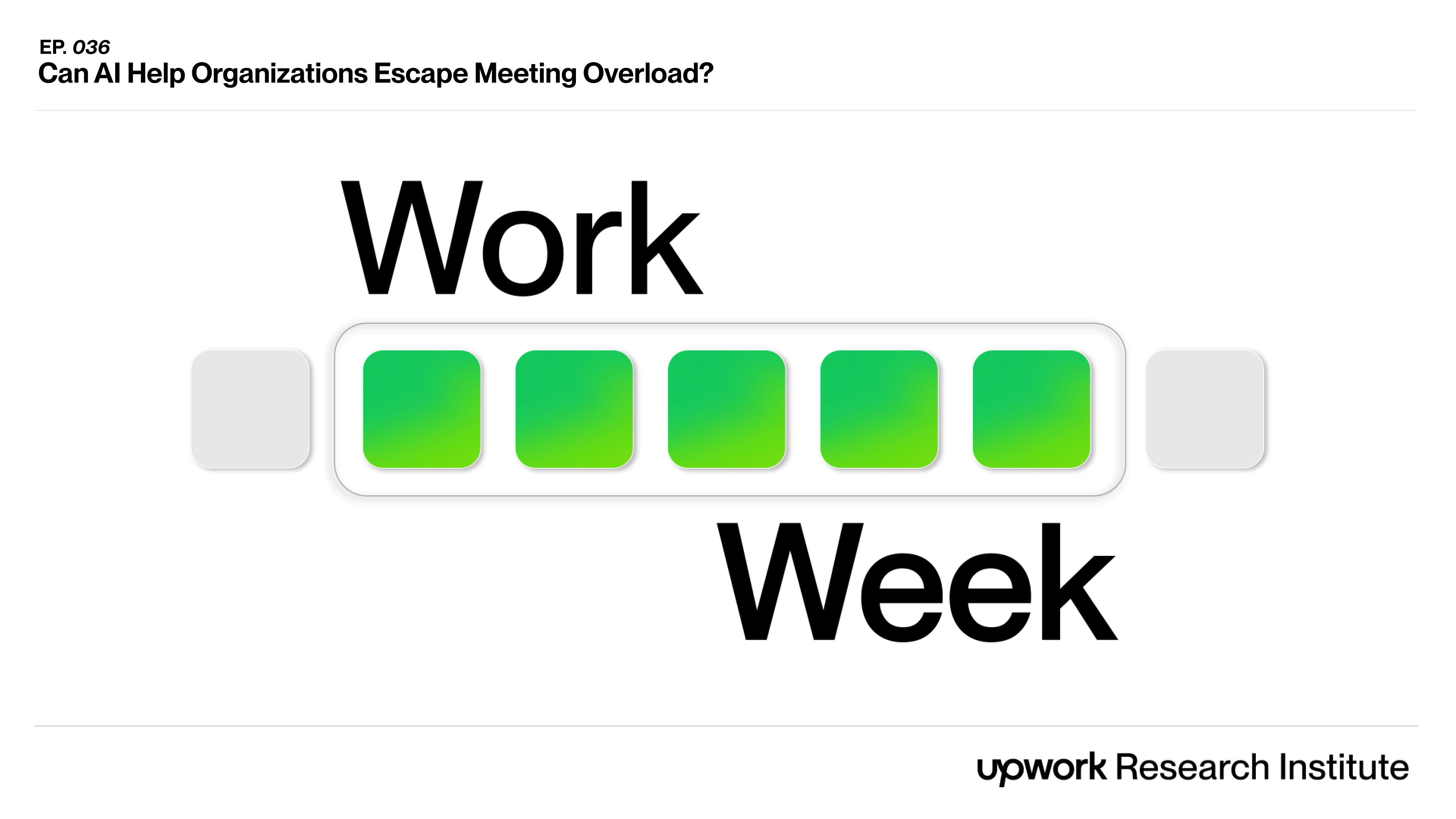

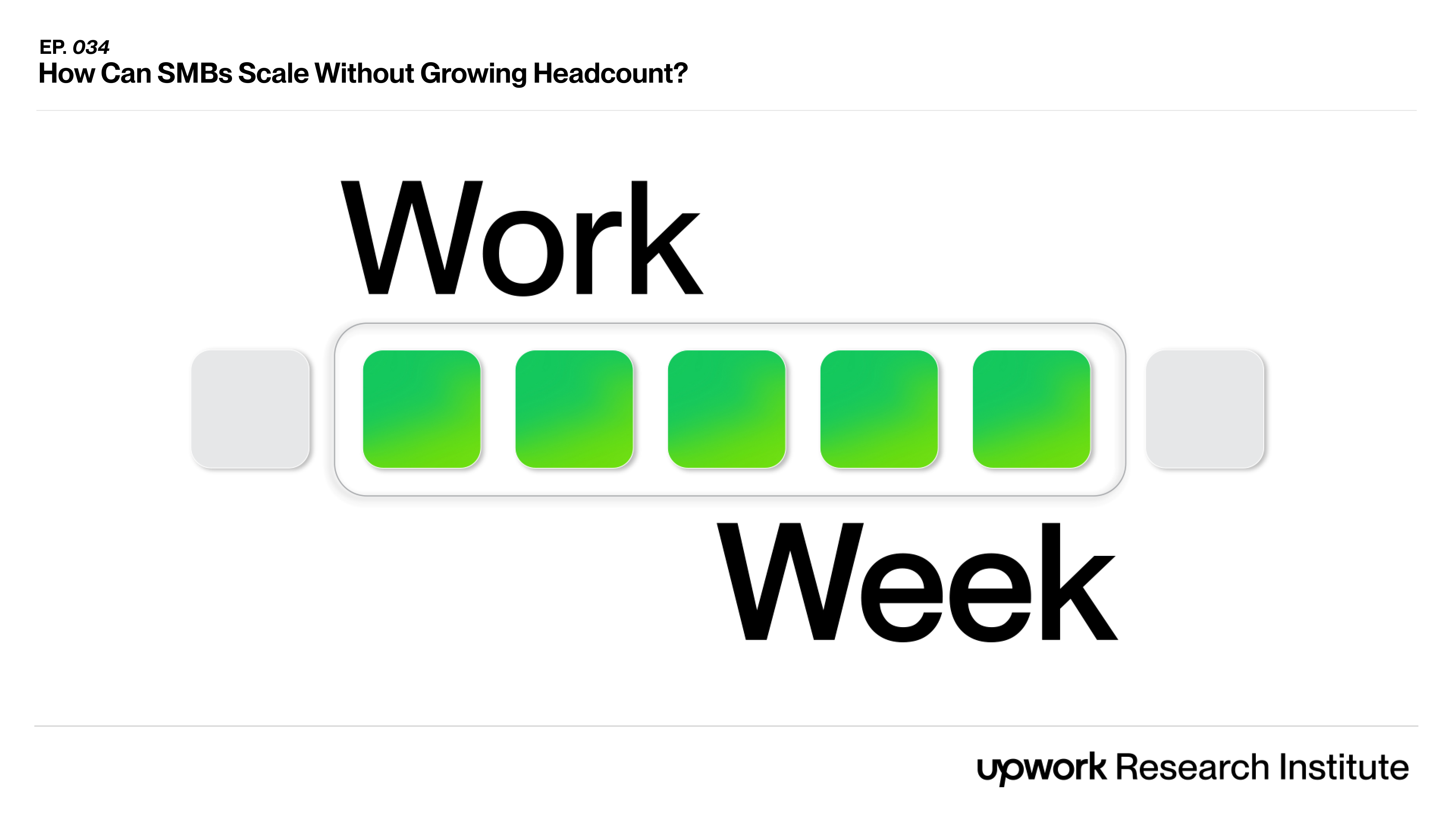
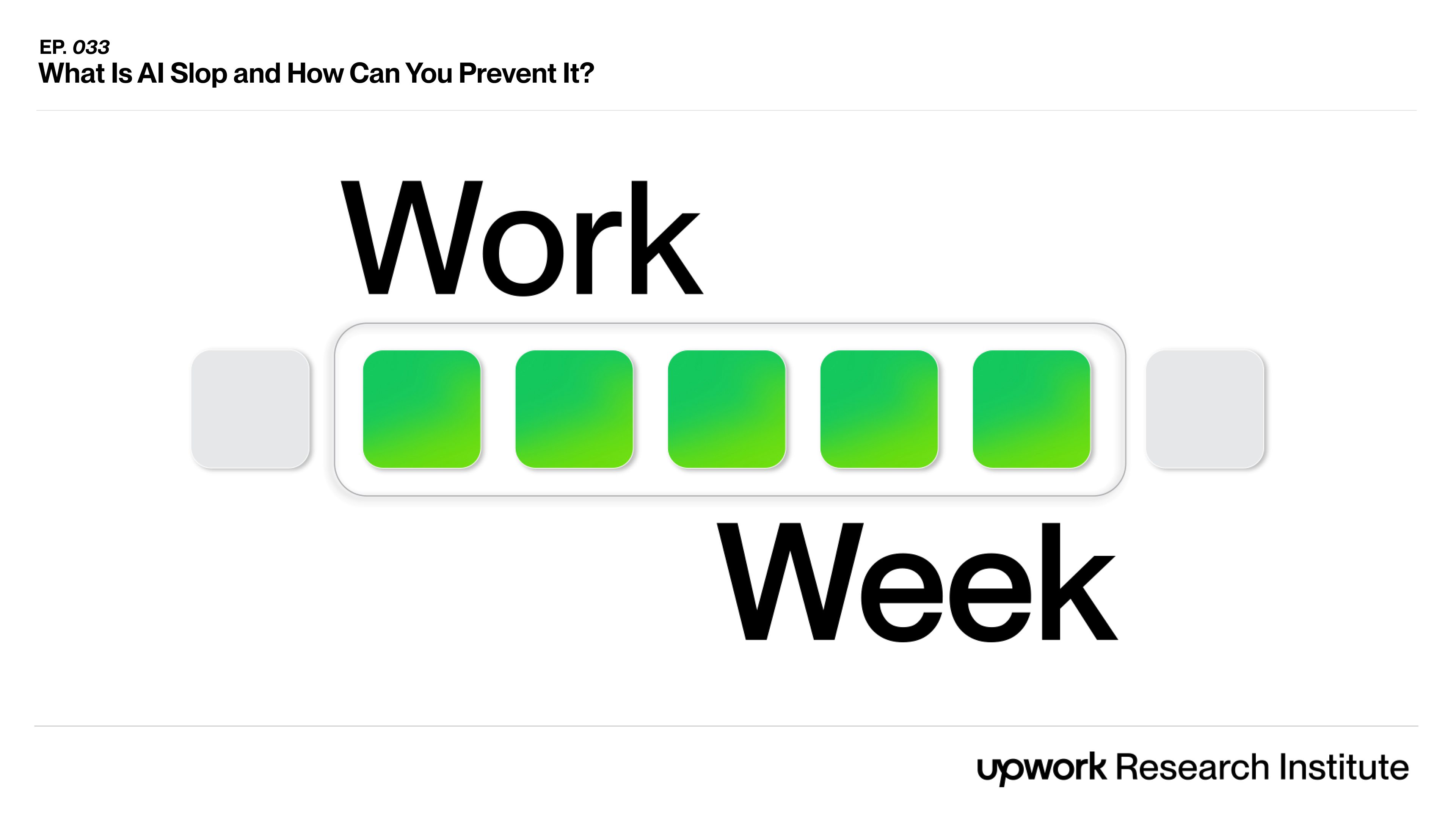
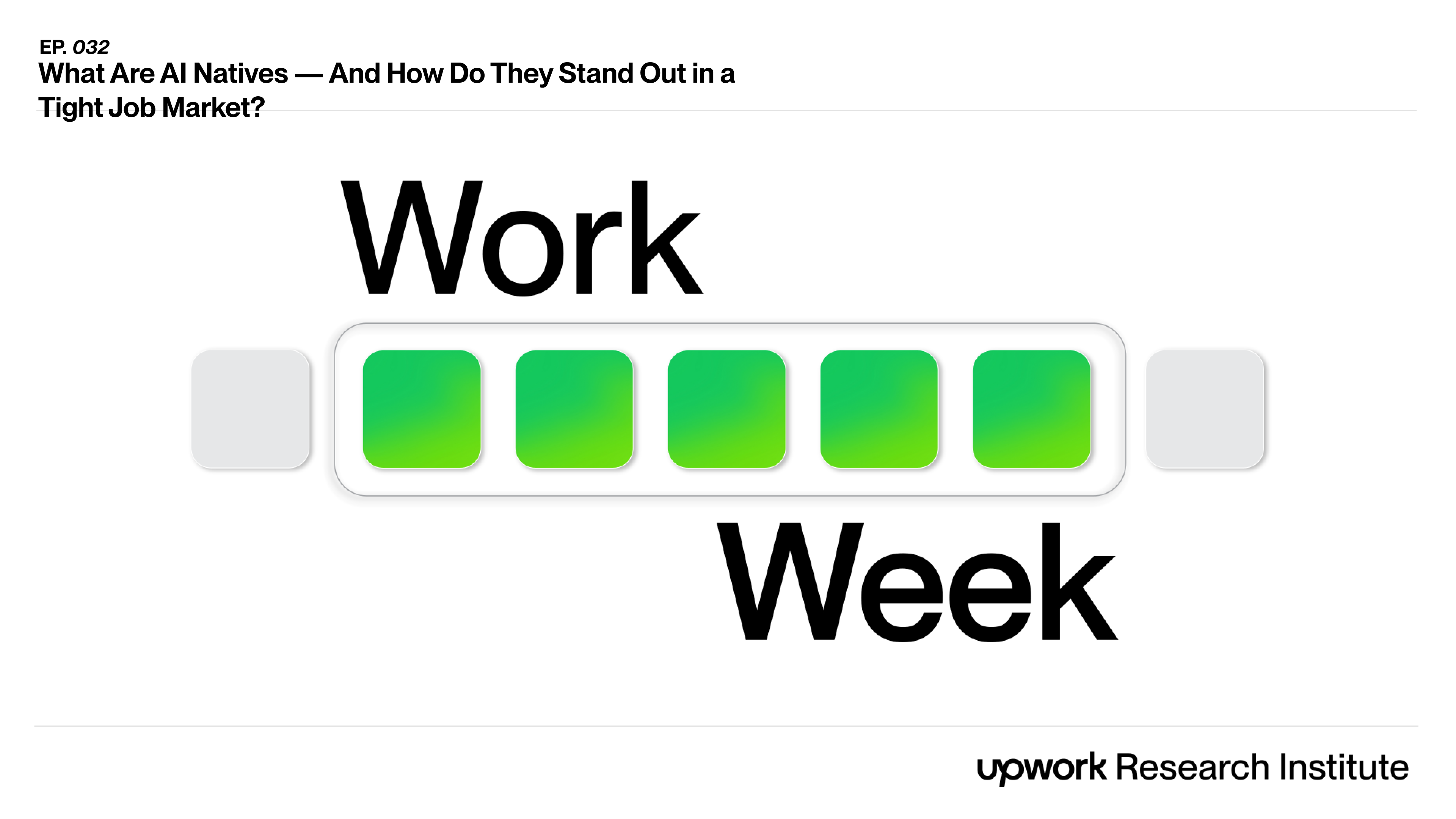
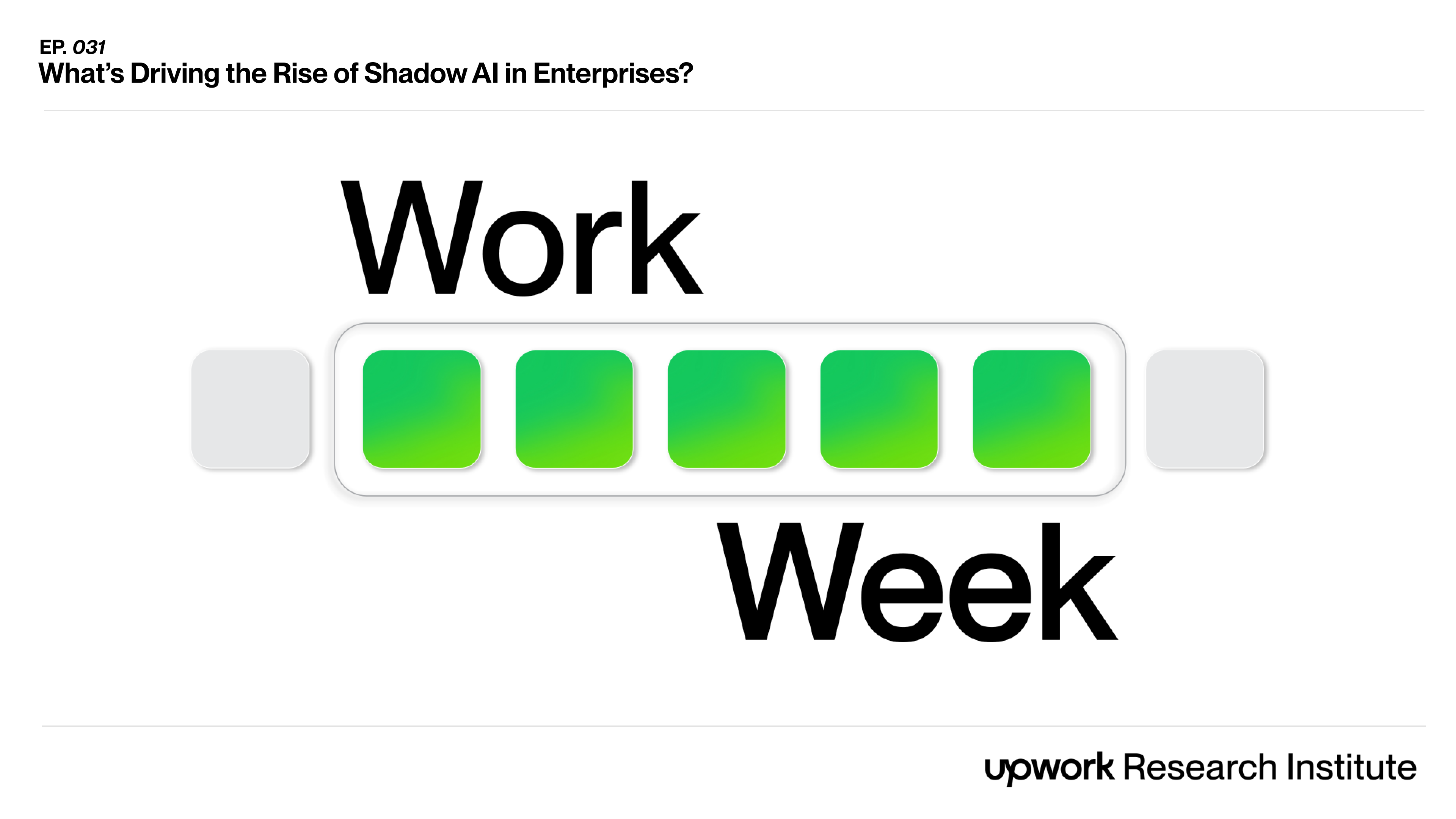
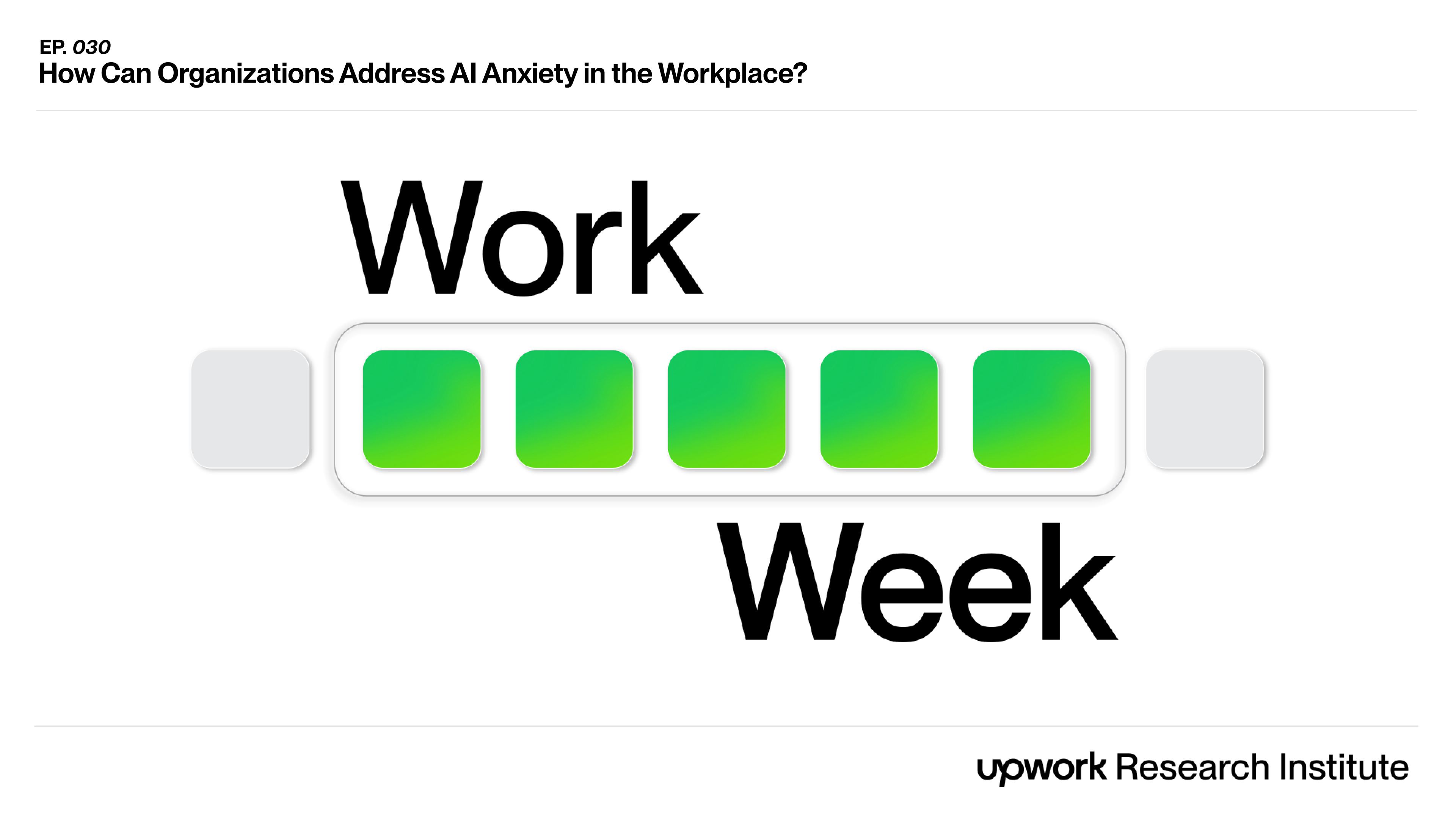
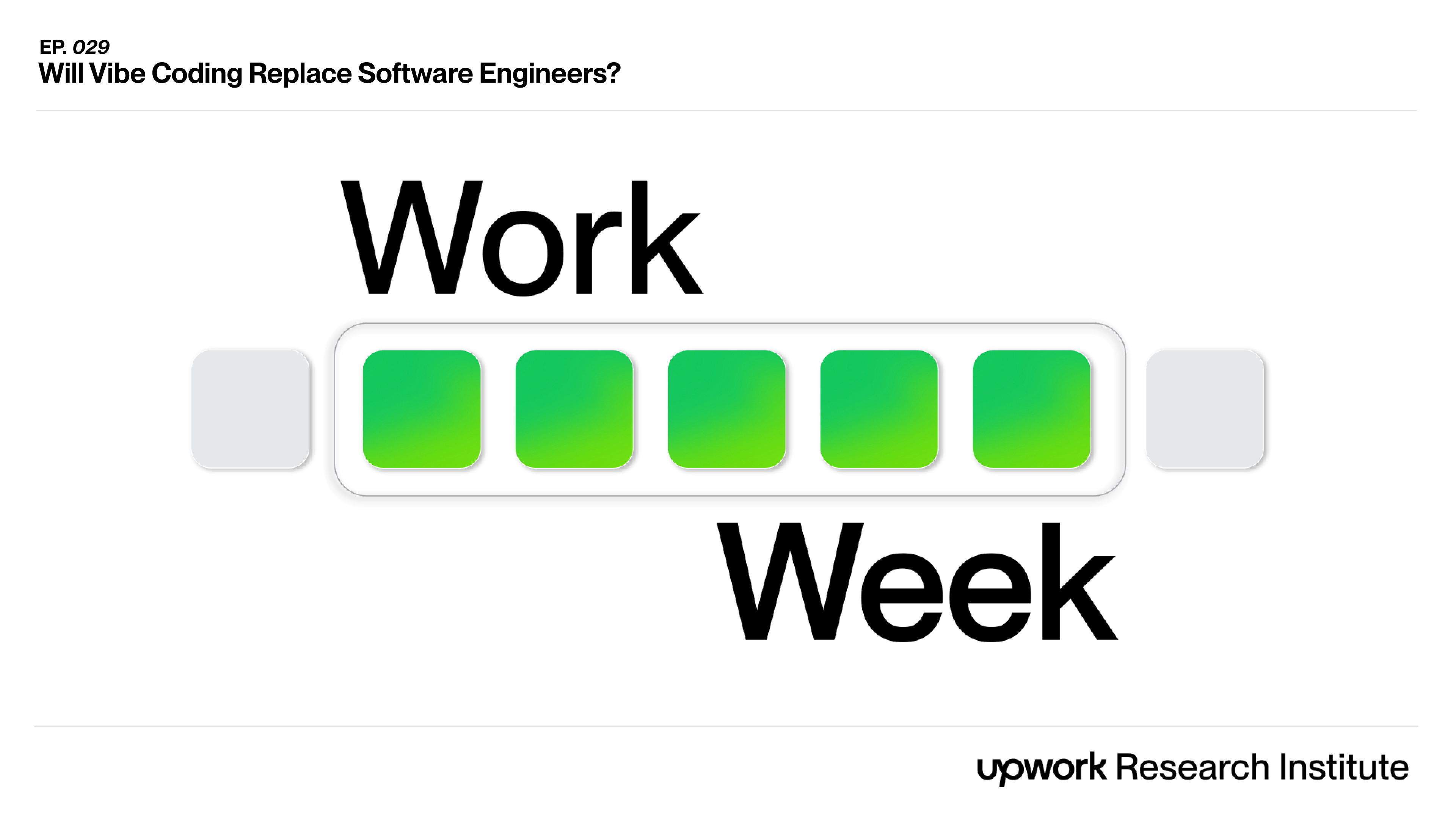
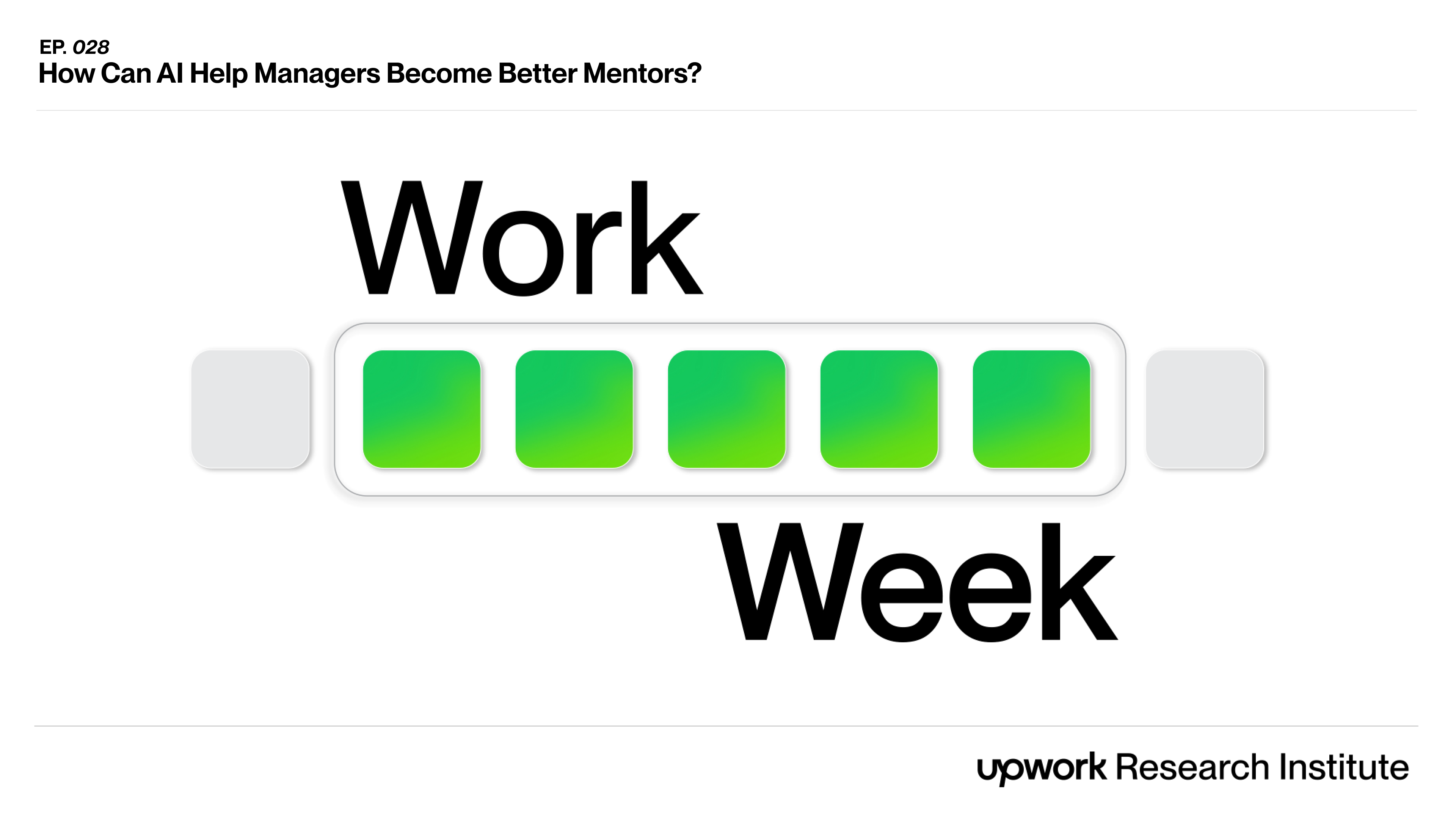

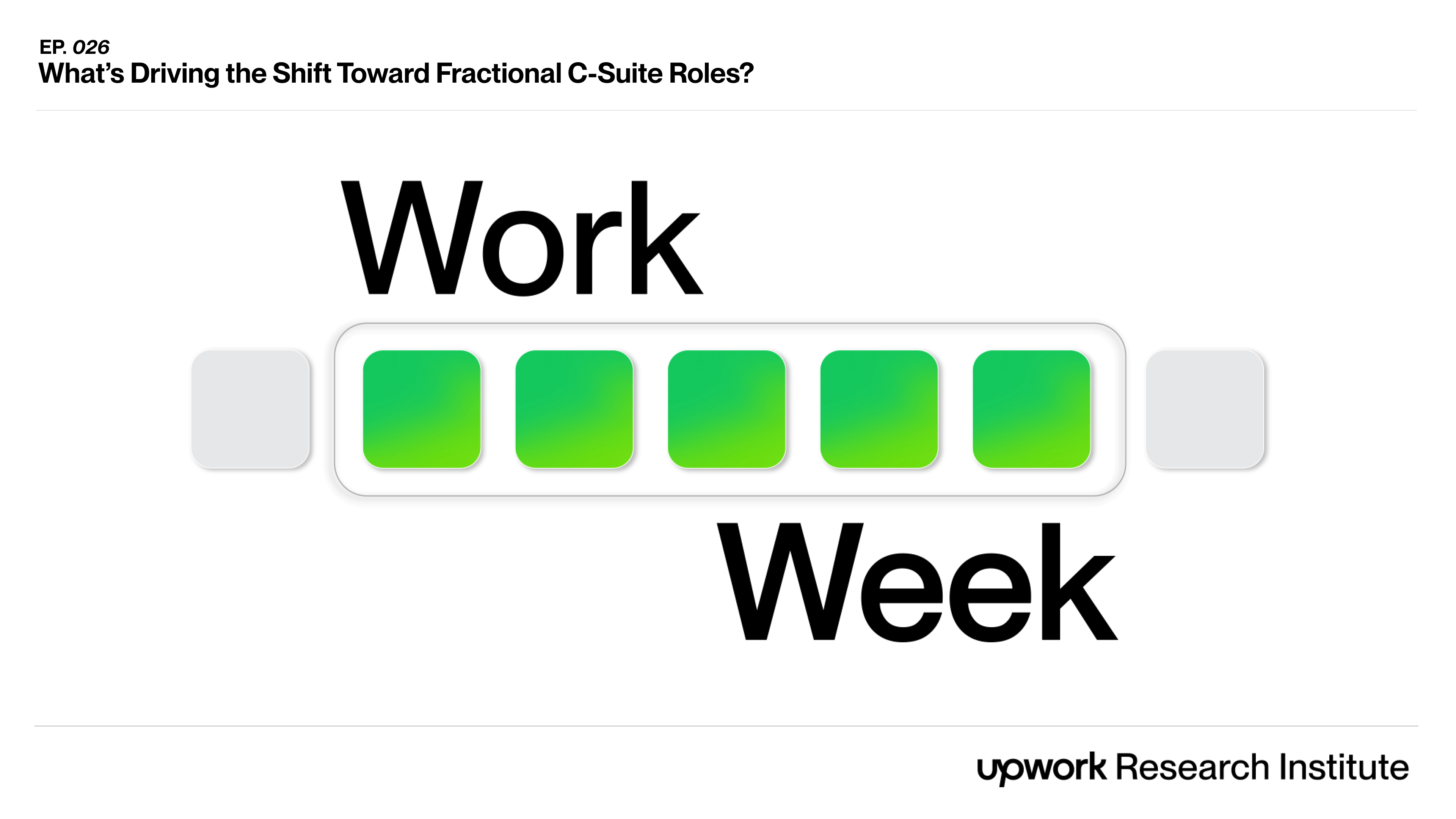
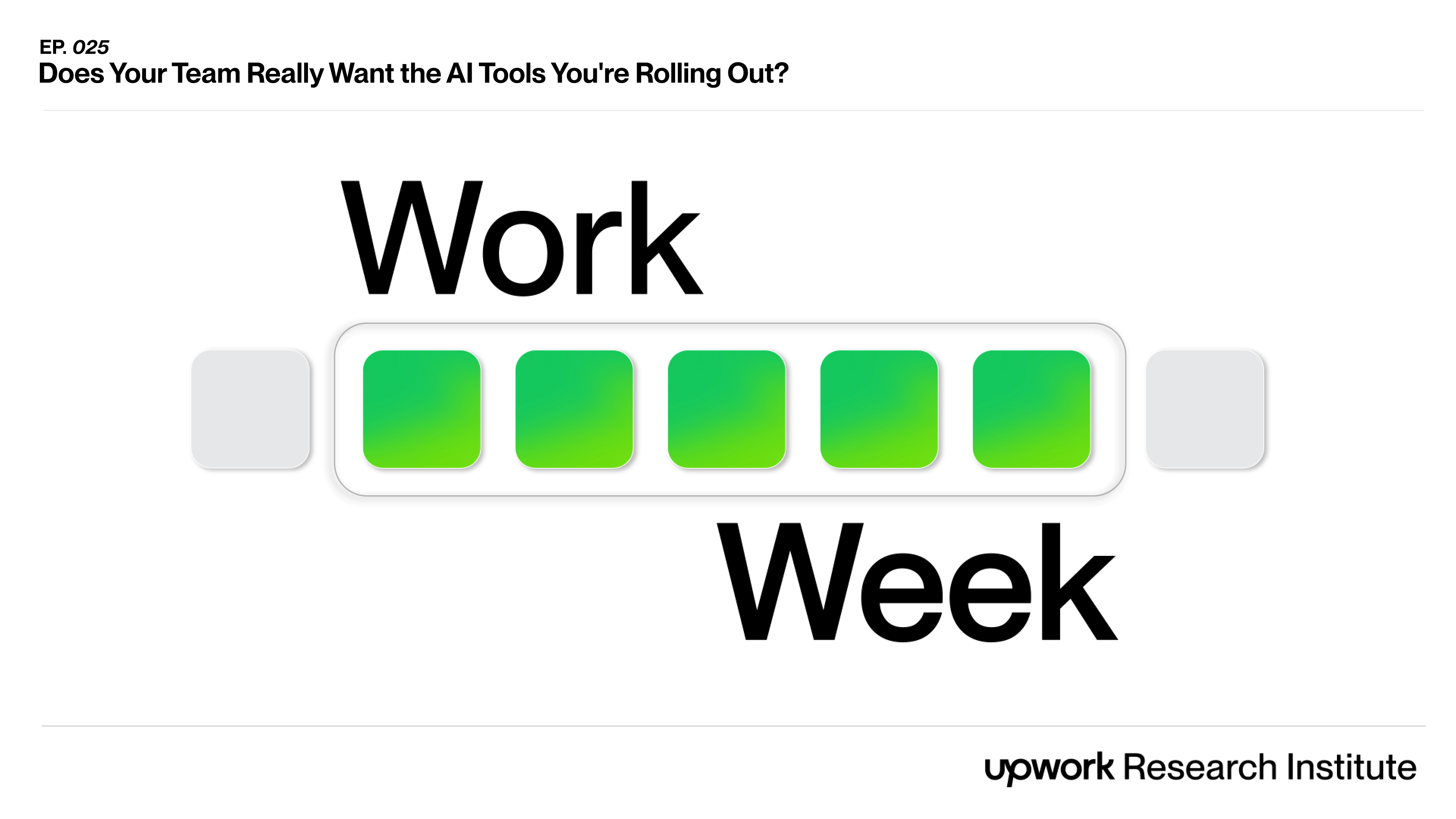
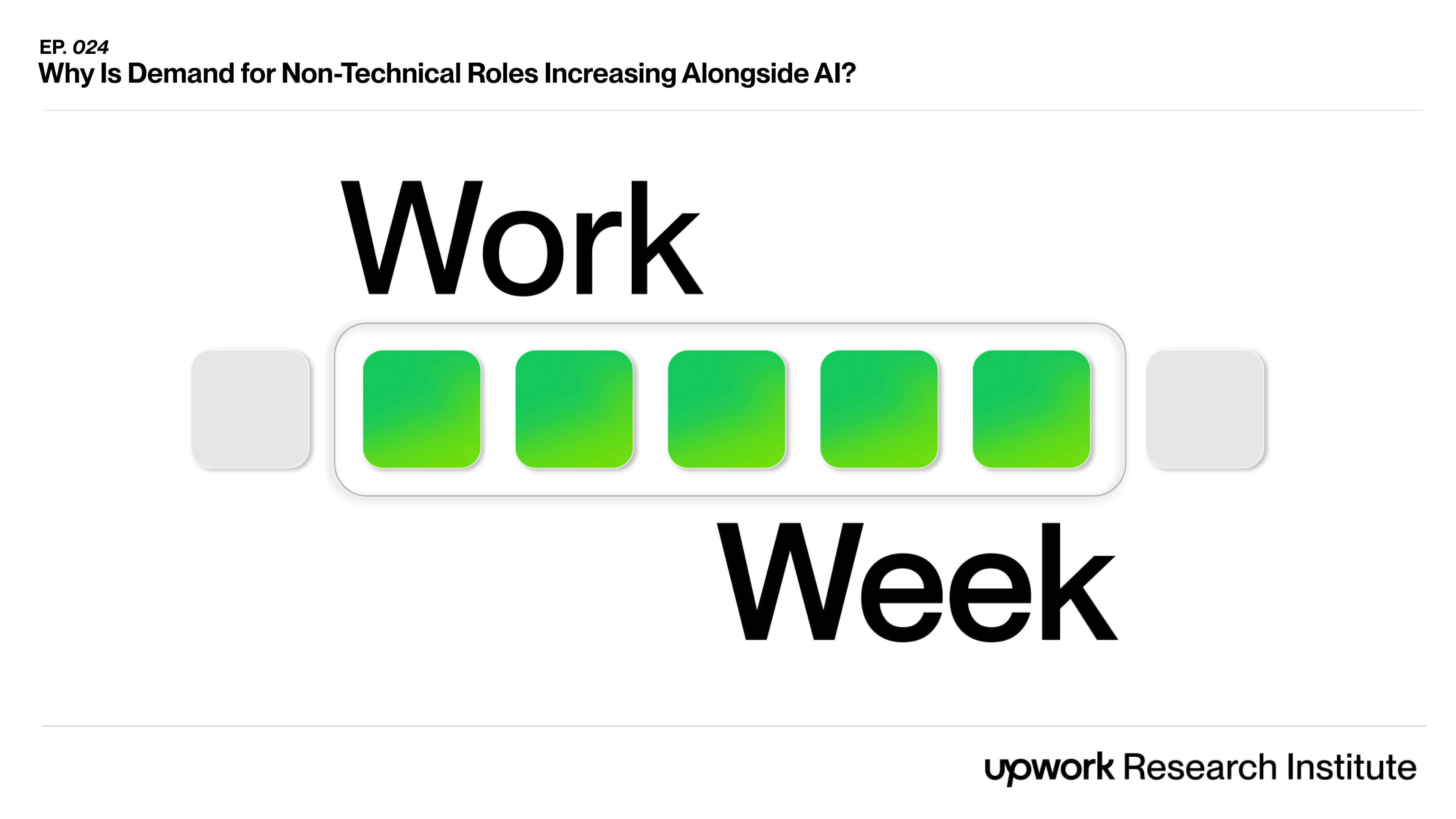
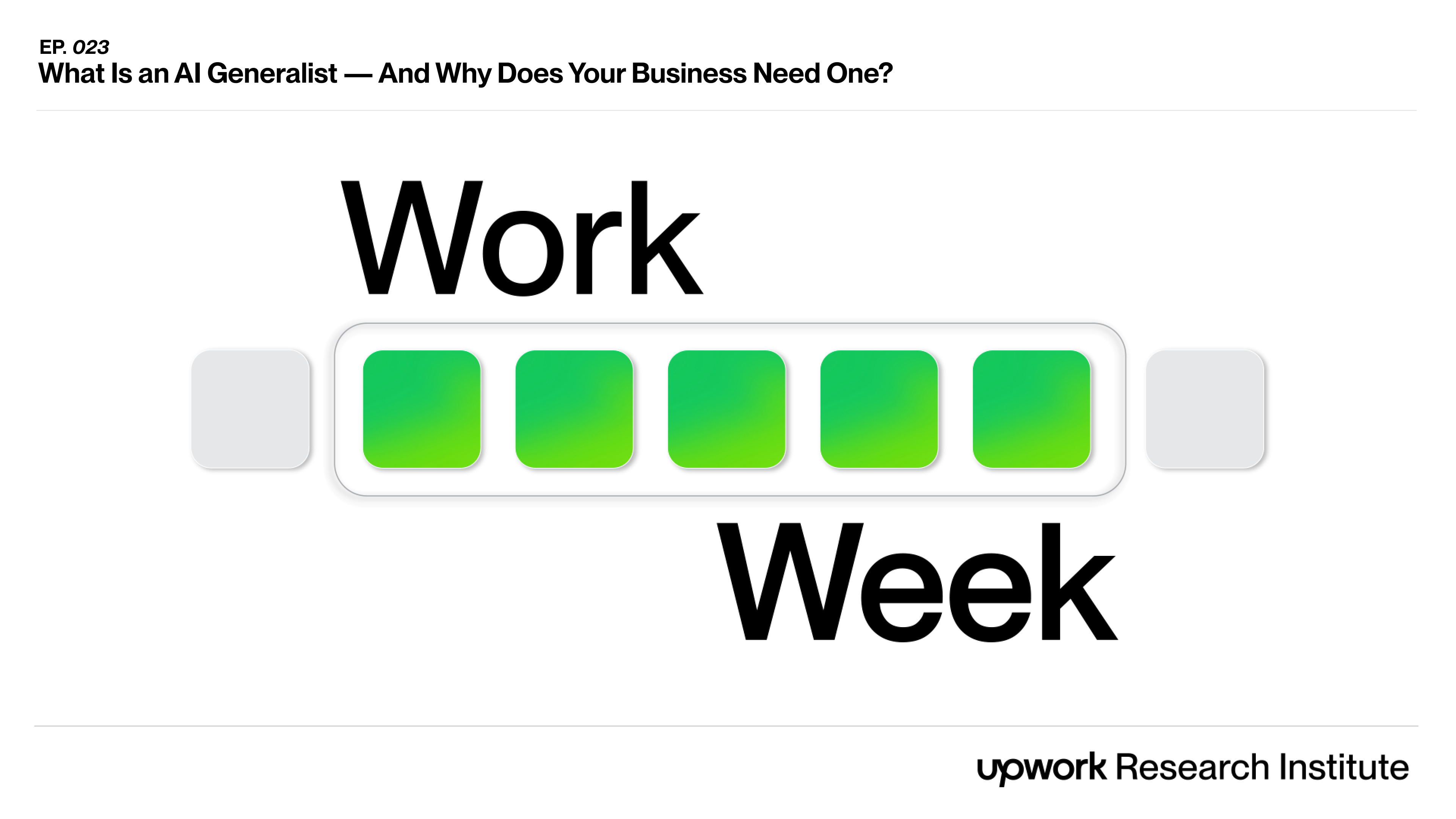
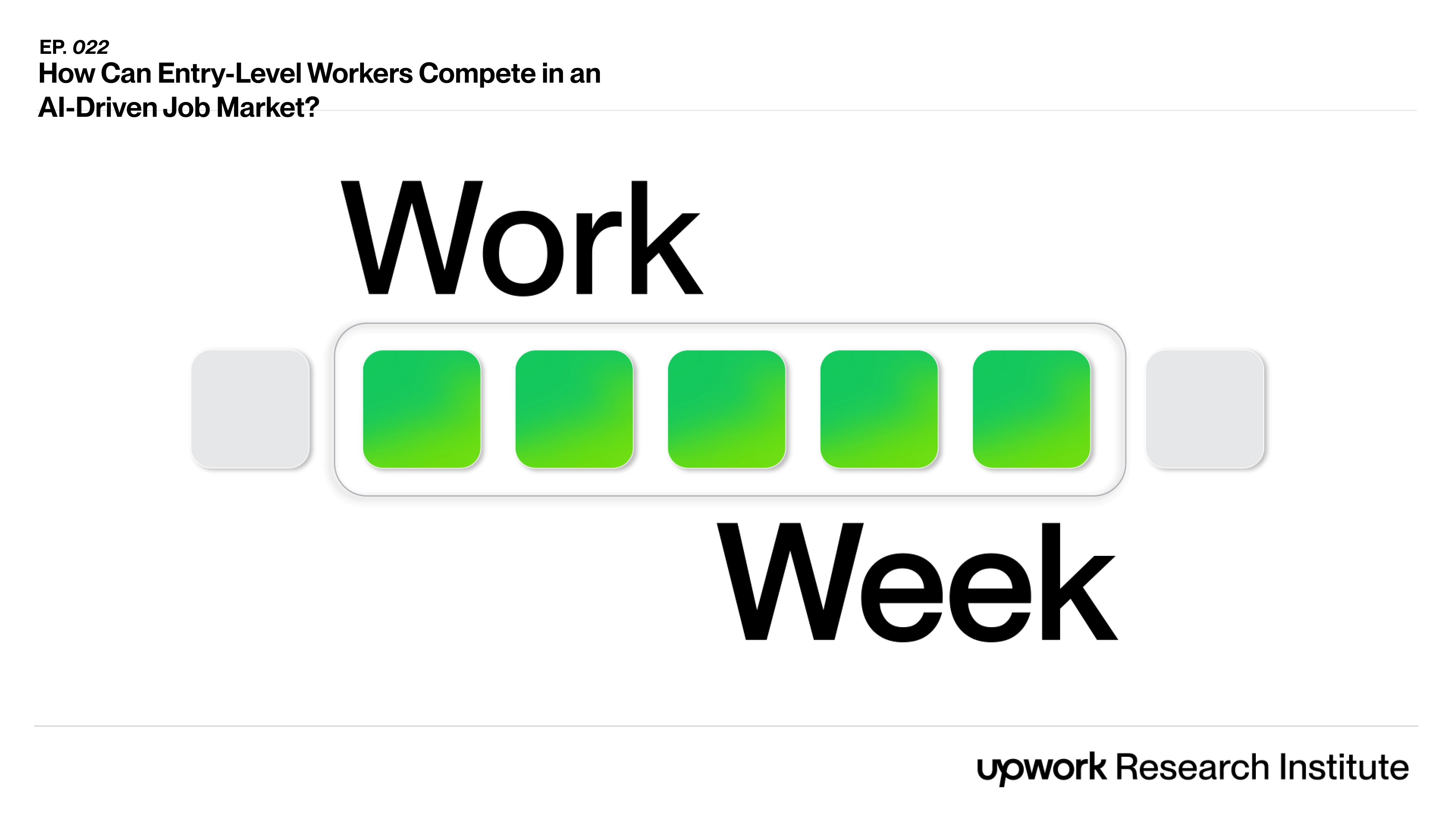

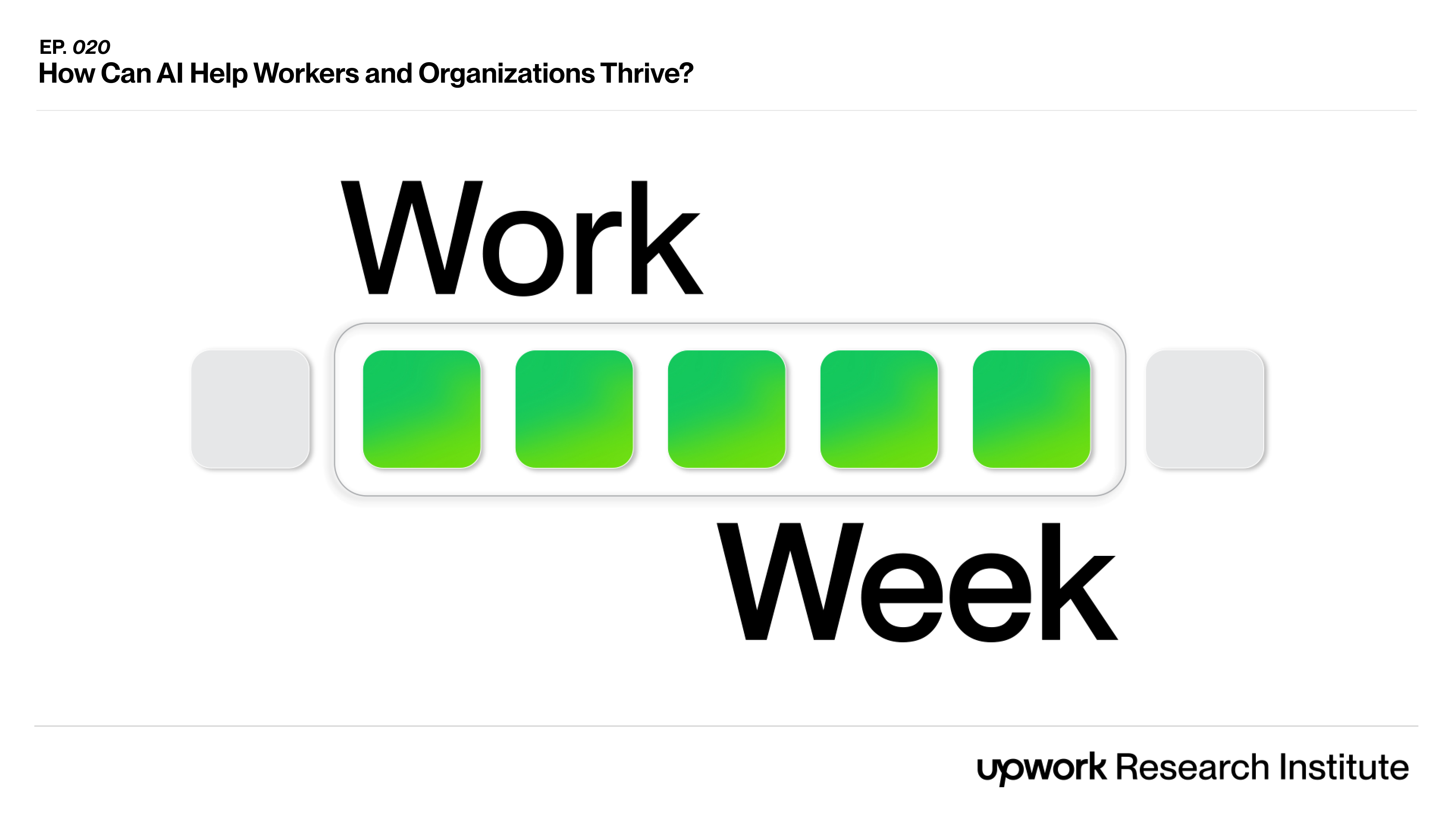
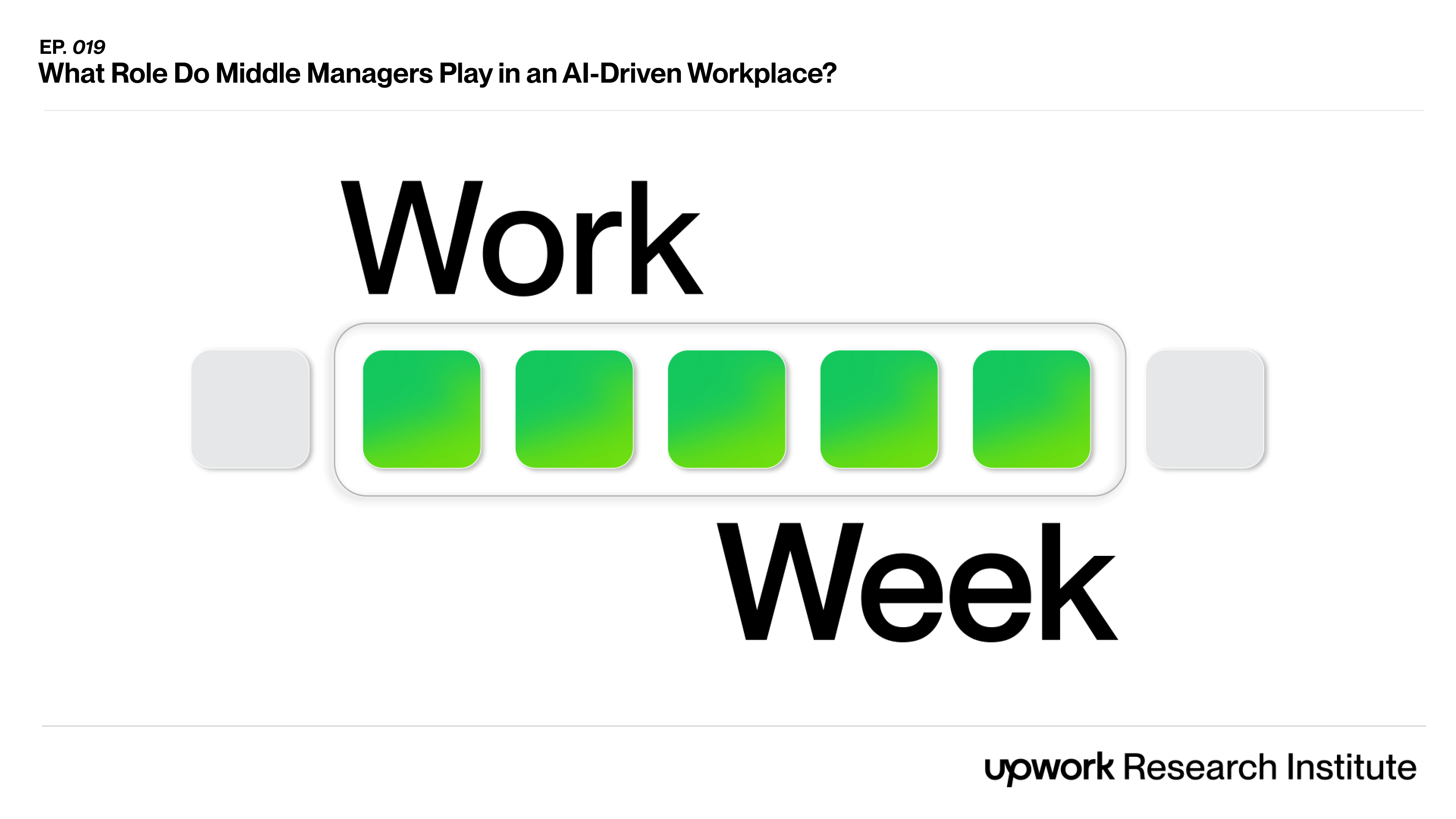
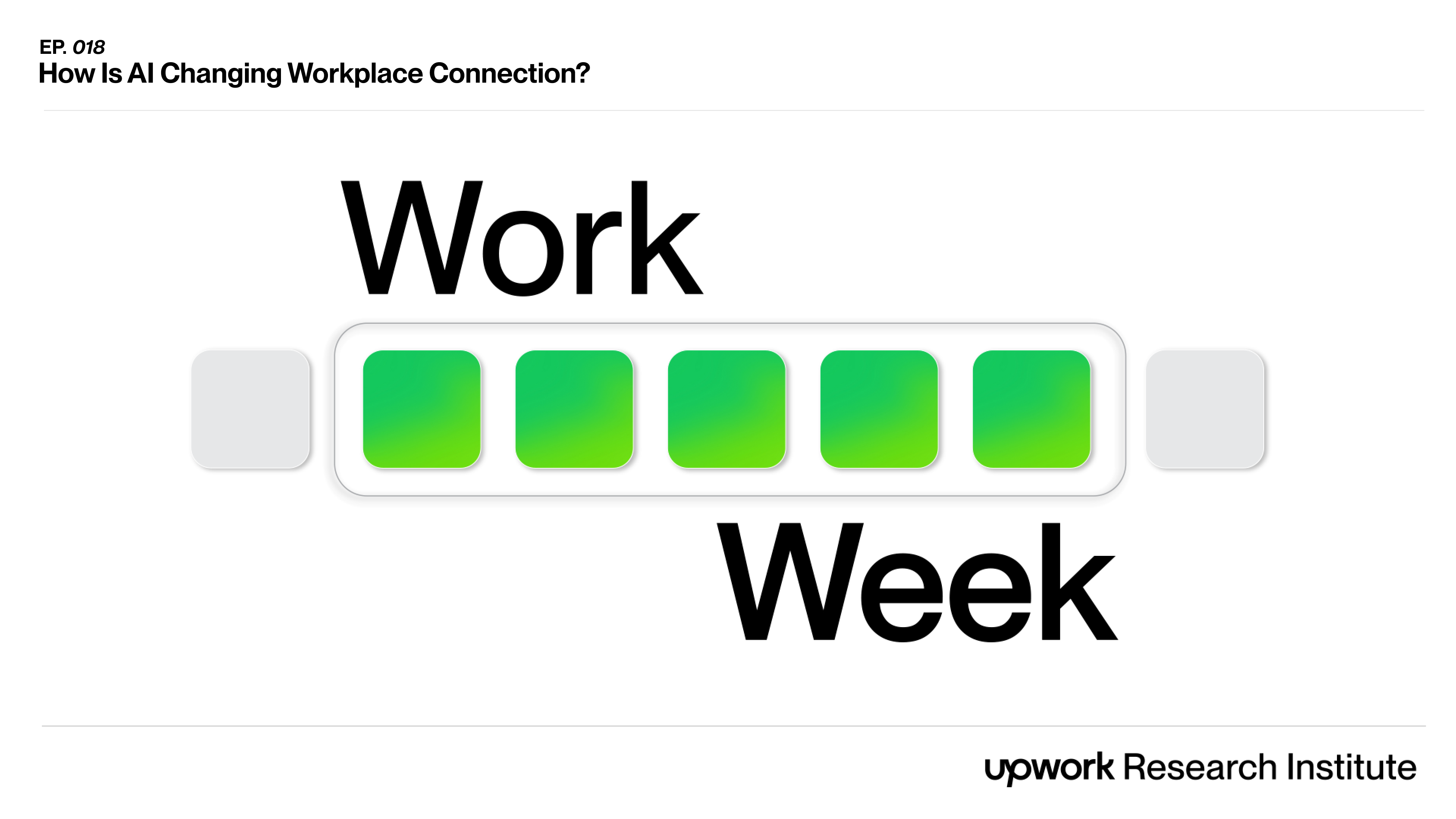
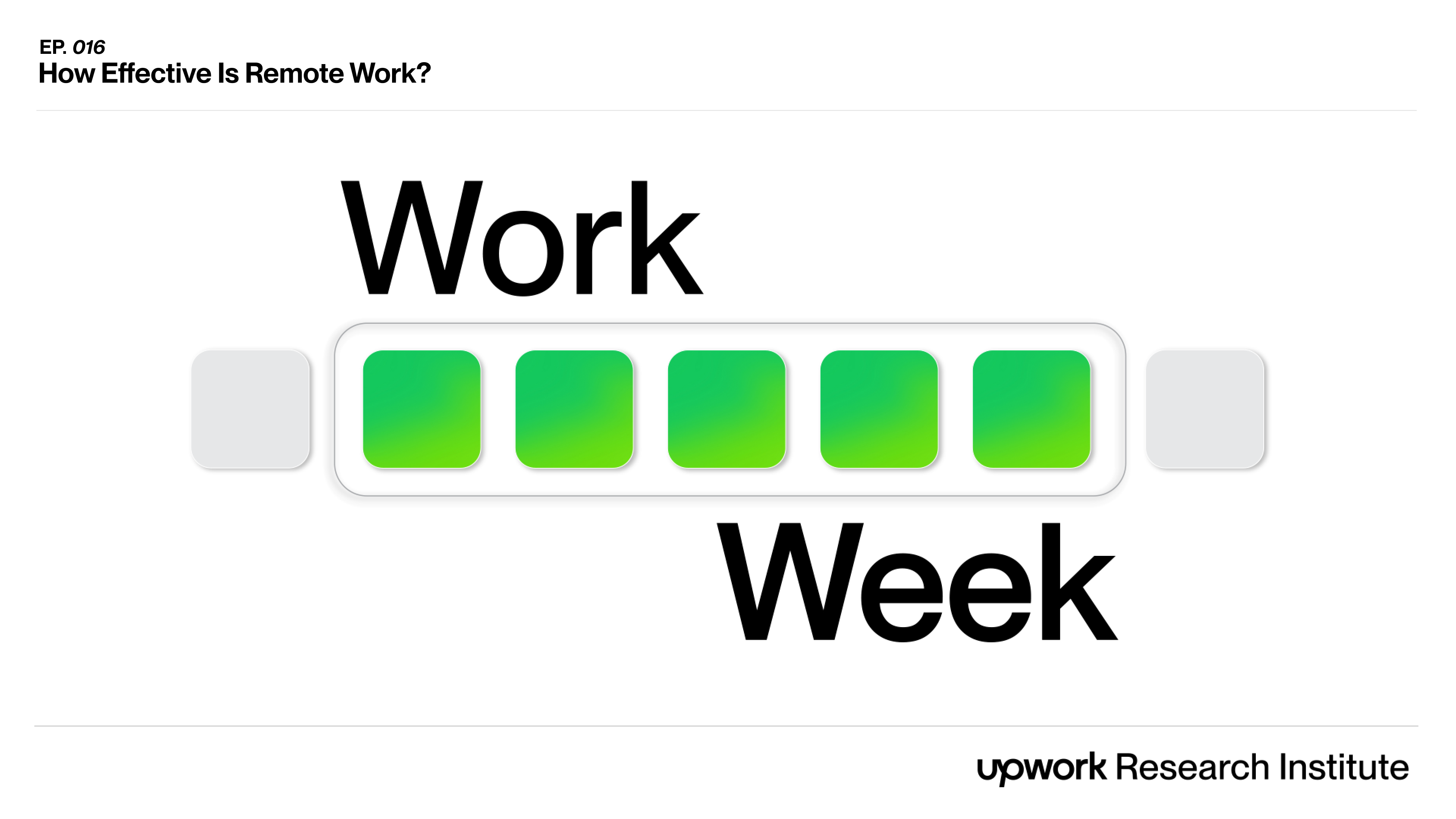
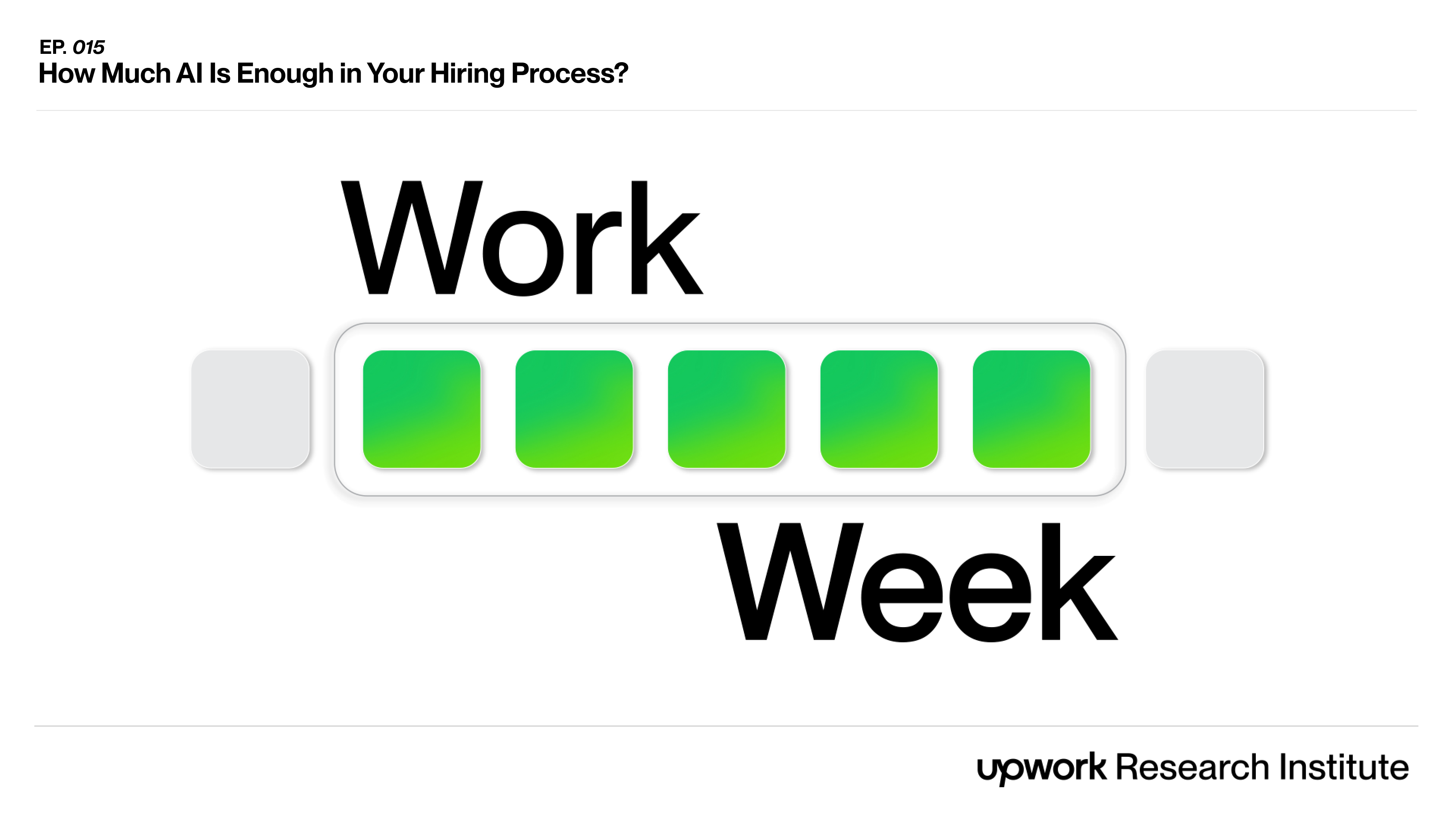

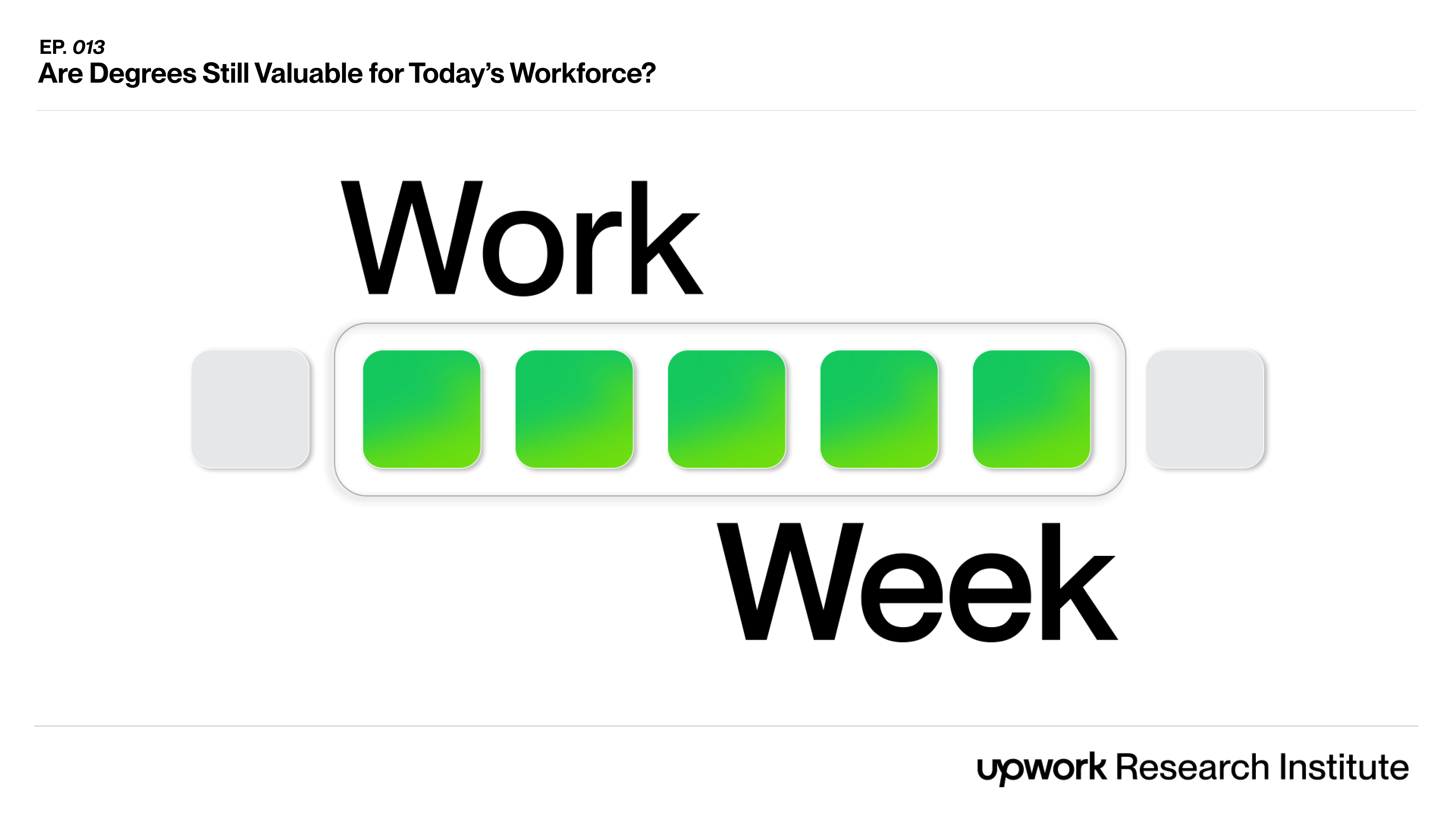
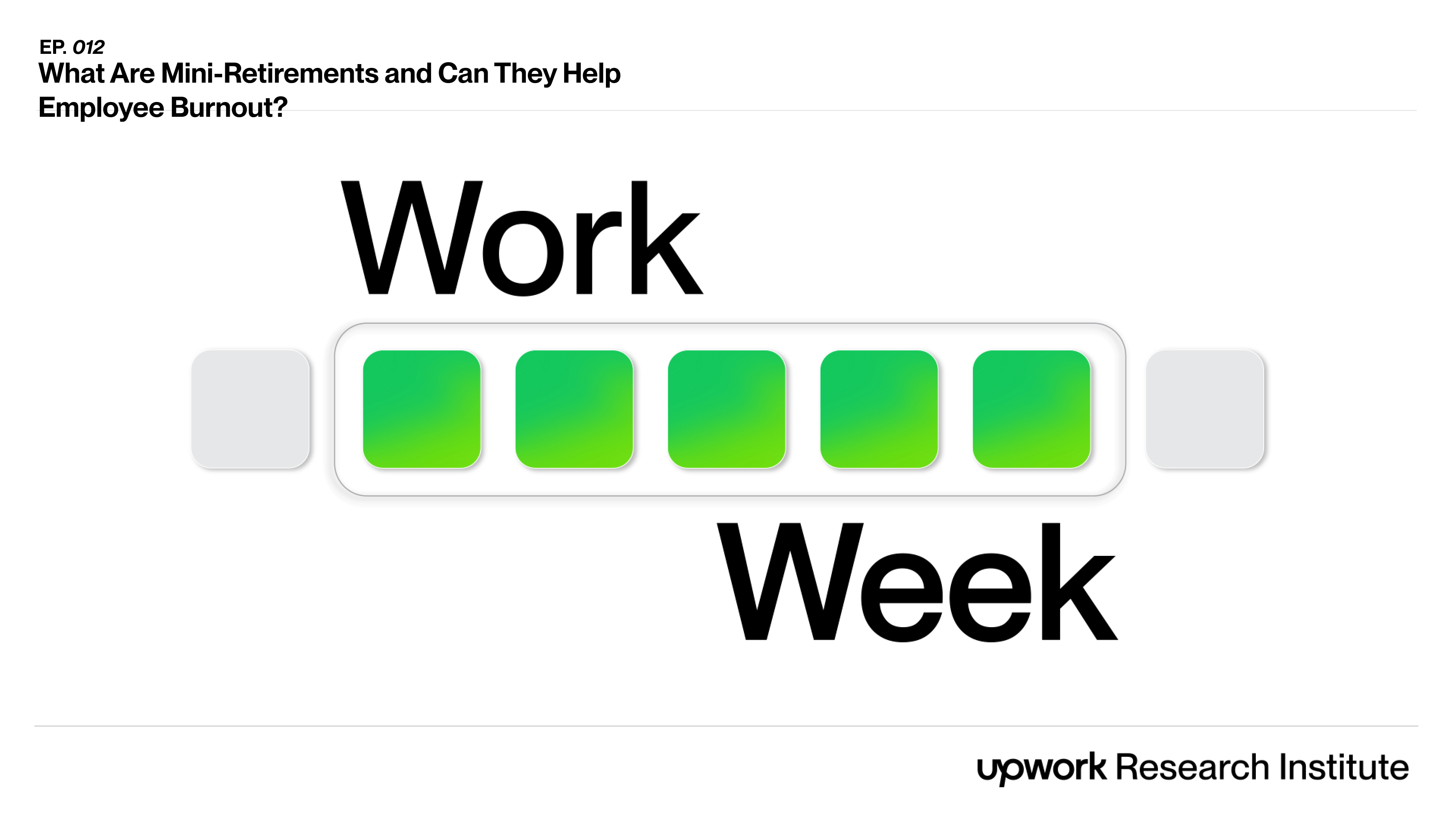
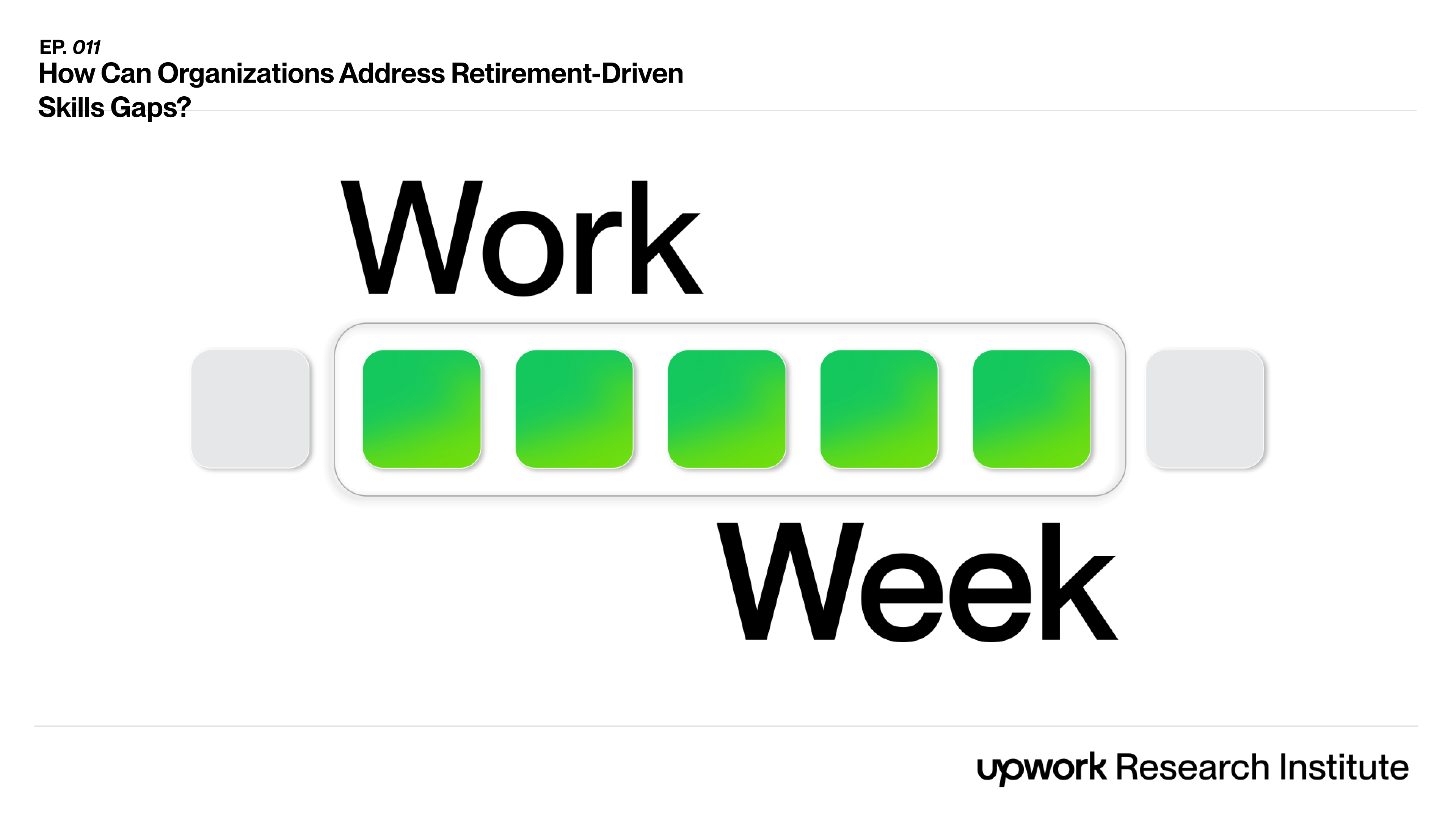
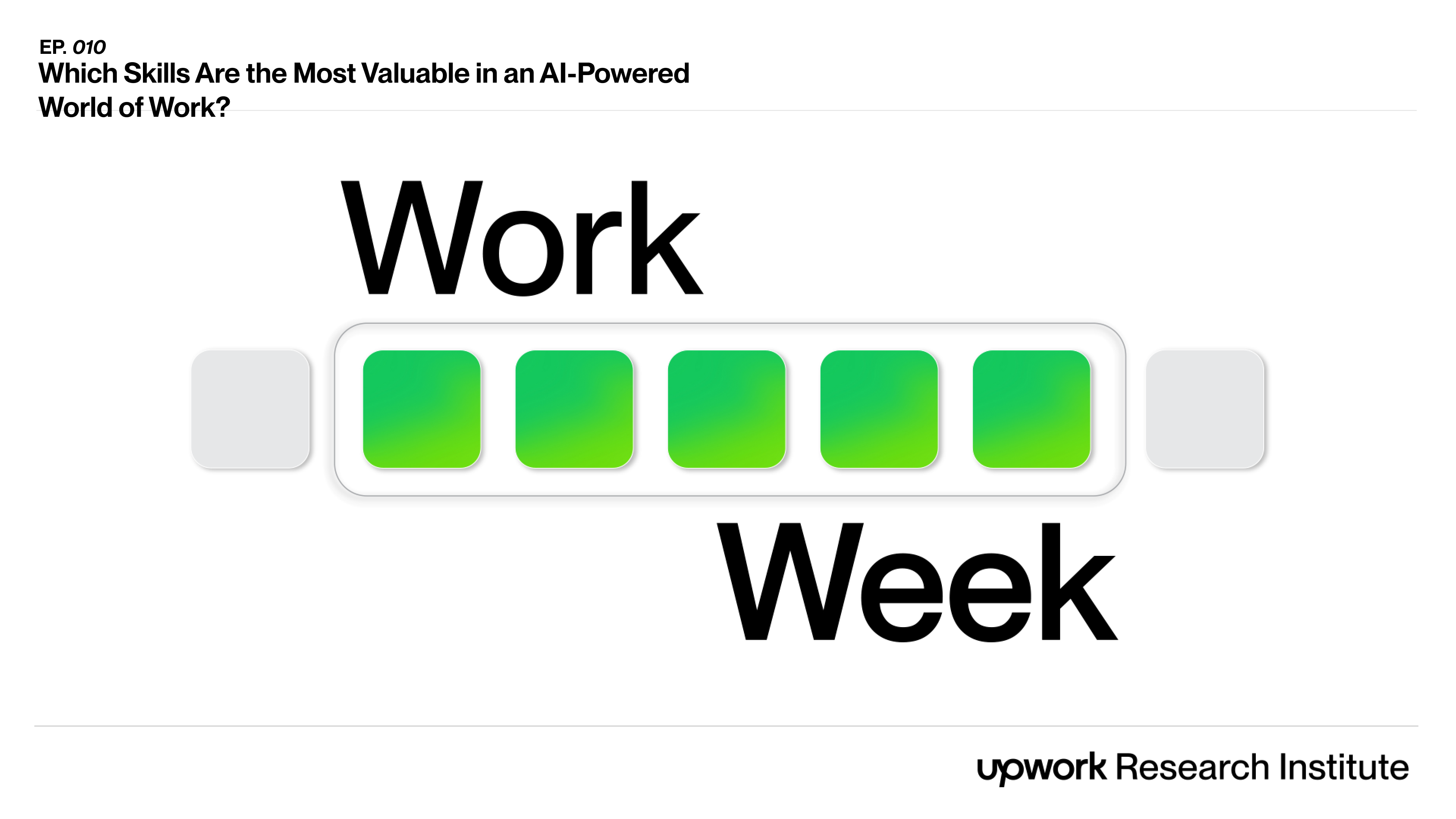
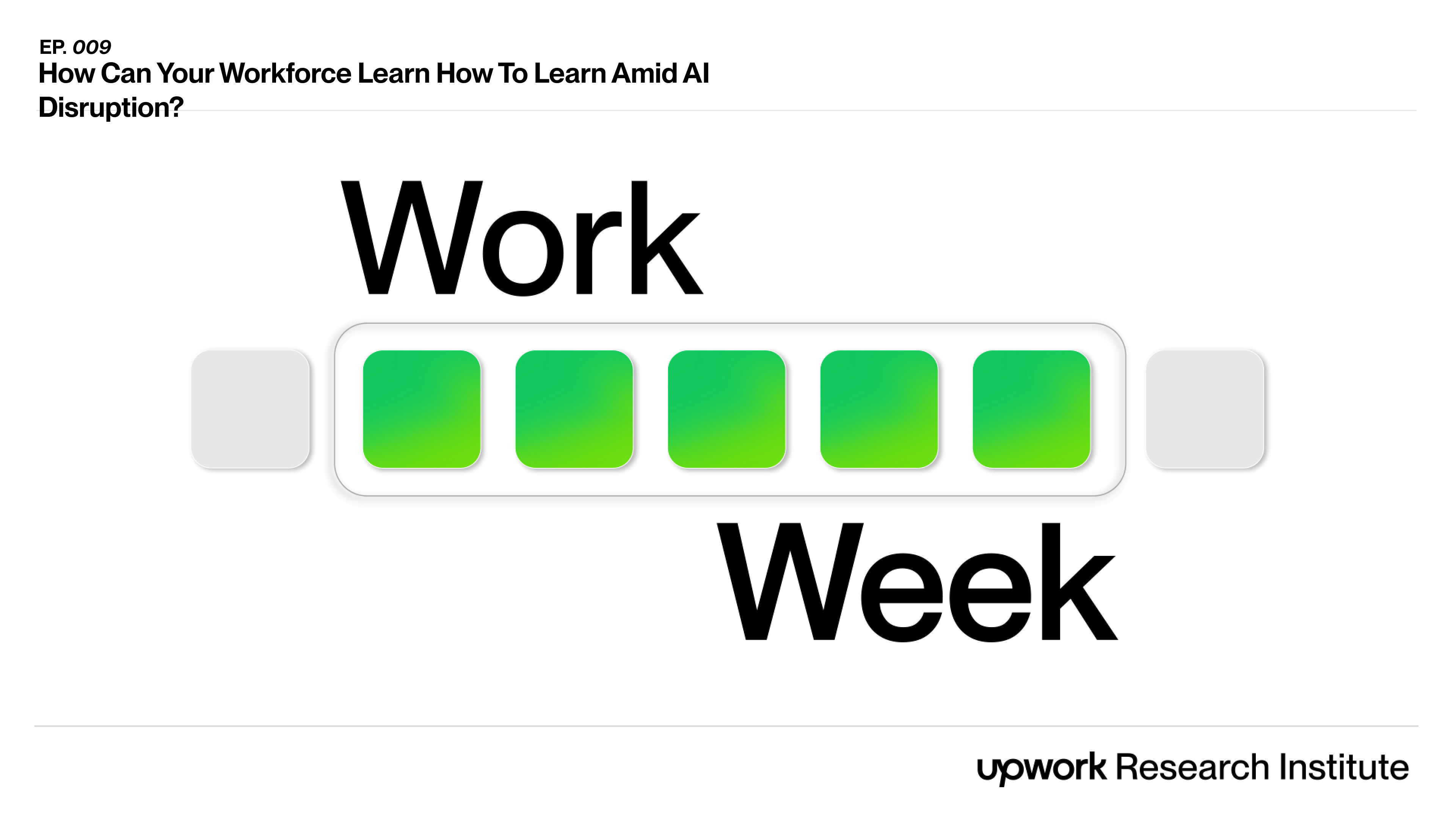
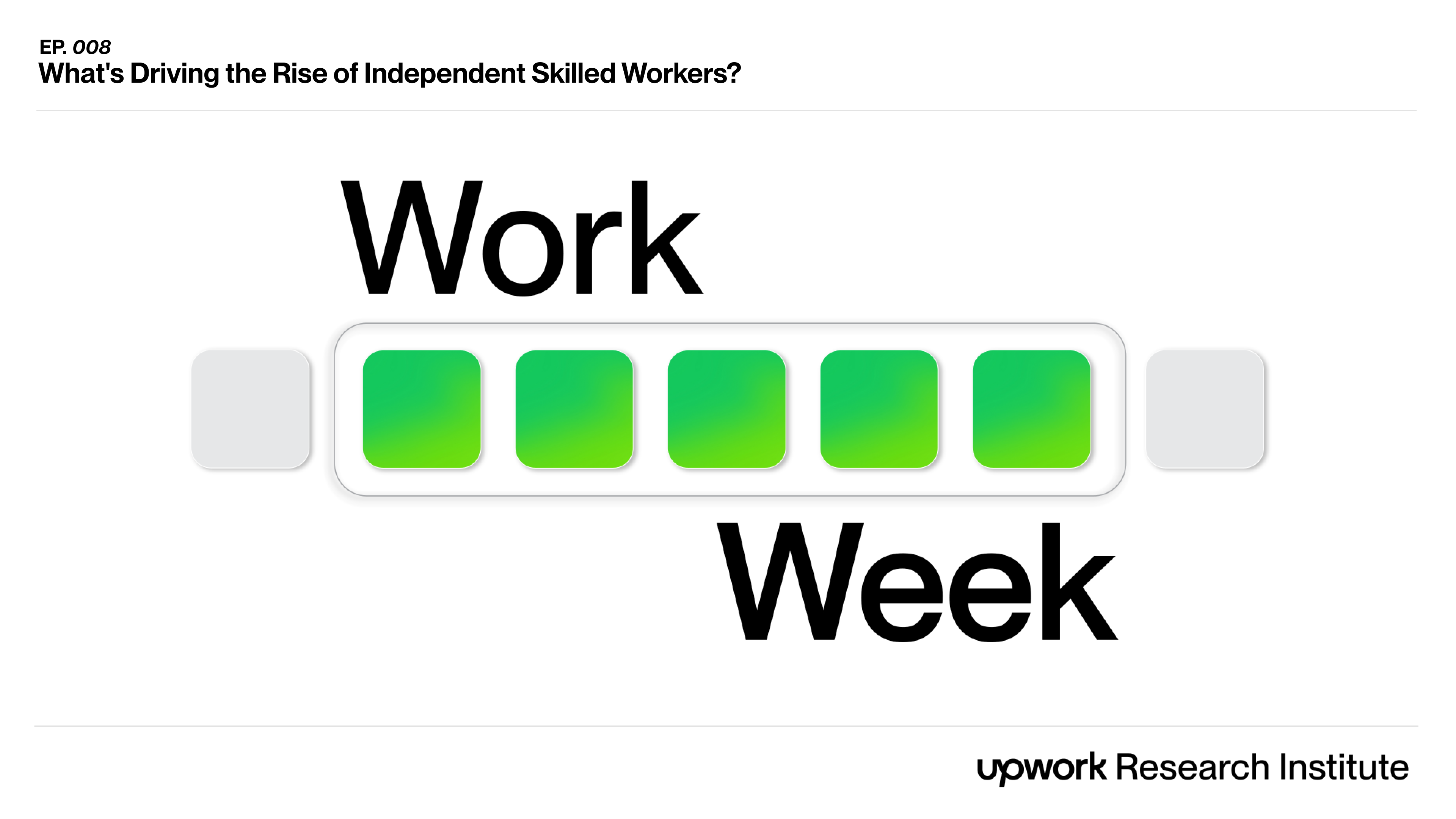
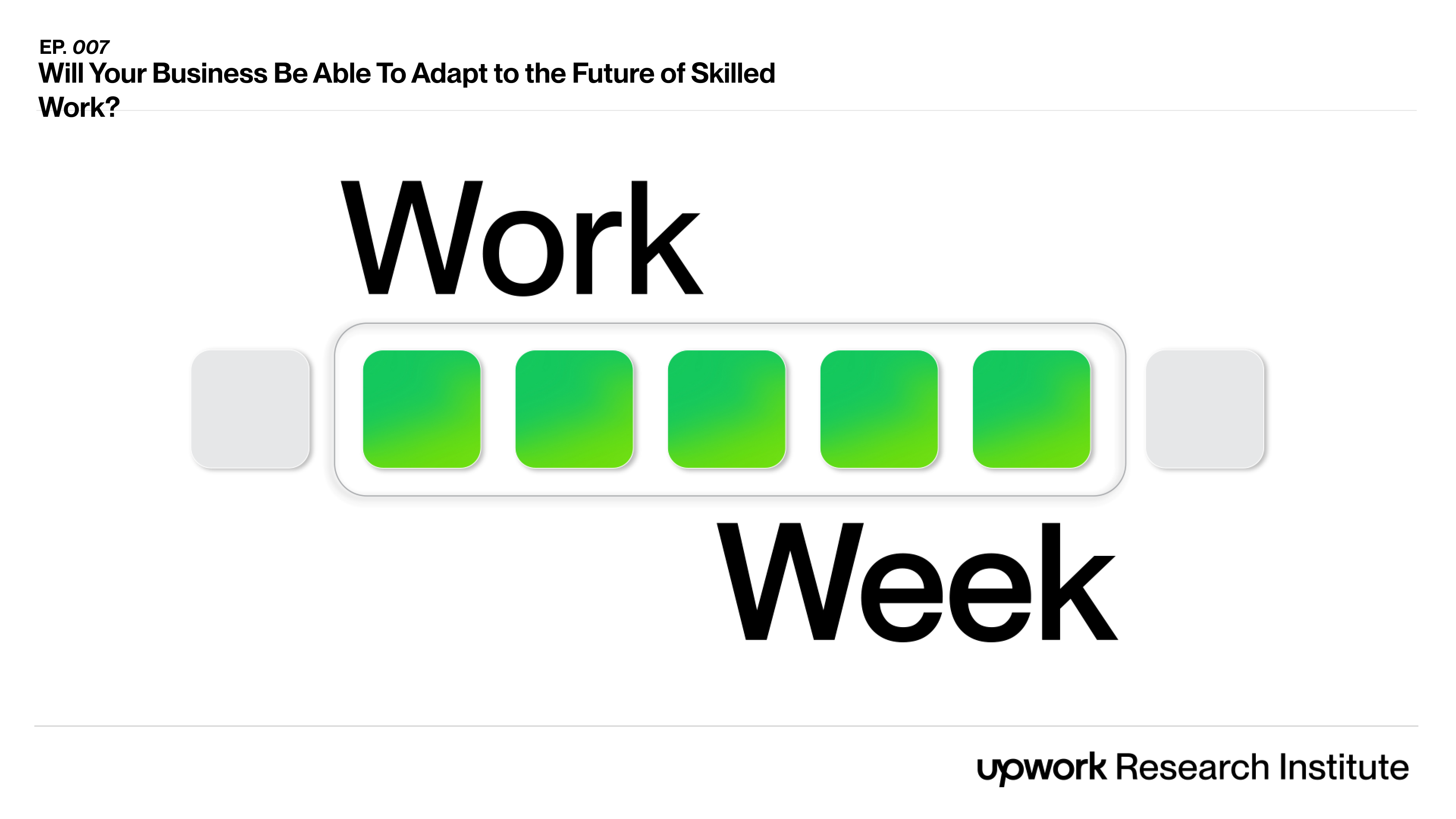
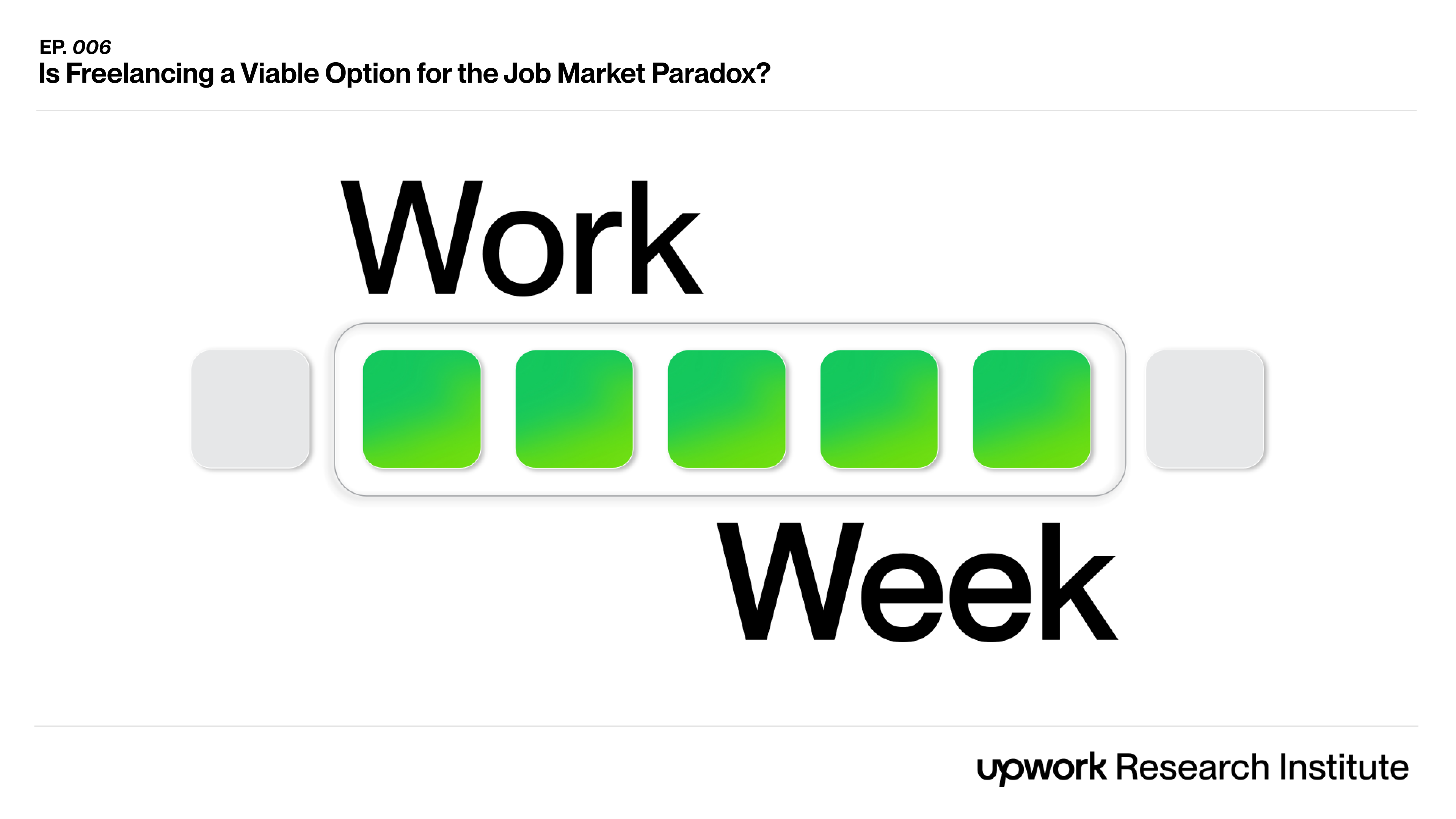
.png)
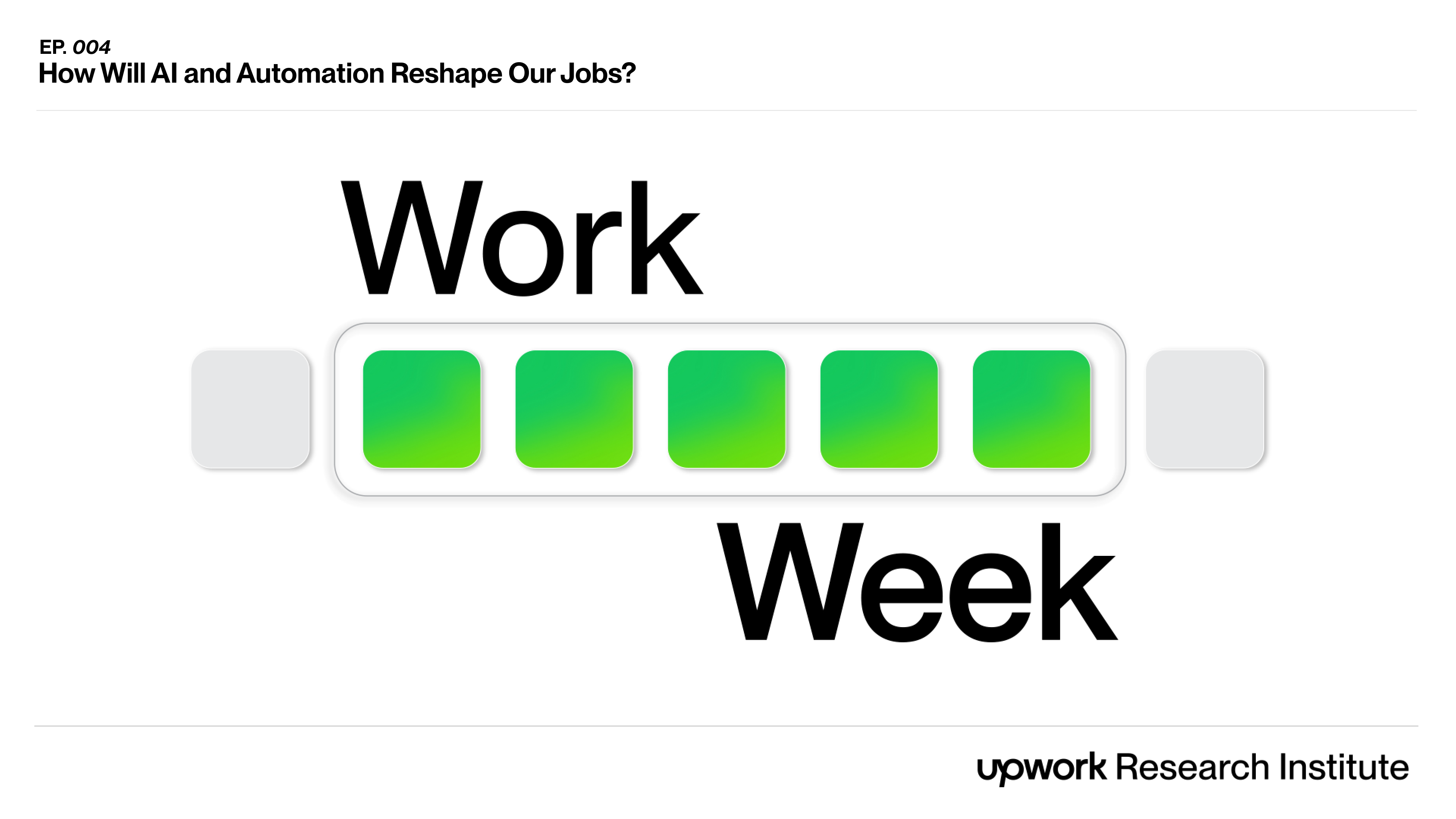

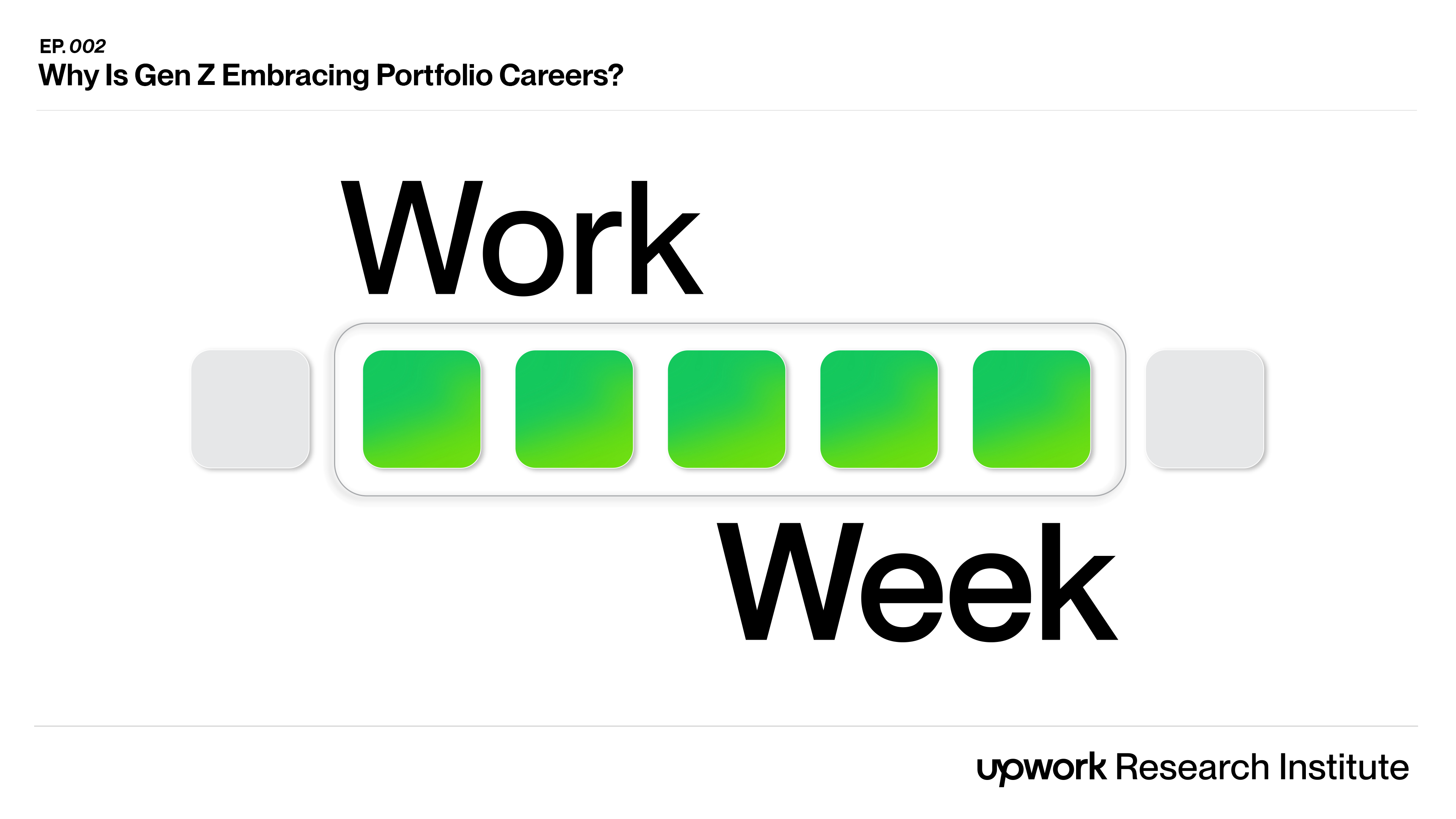
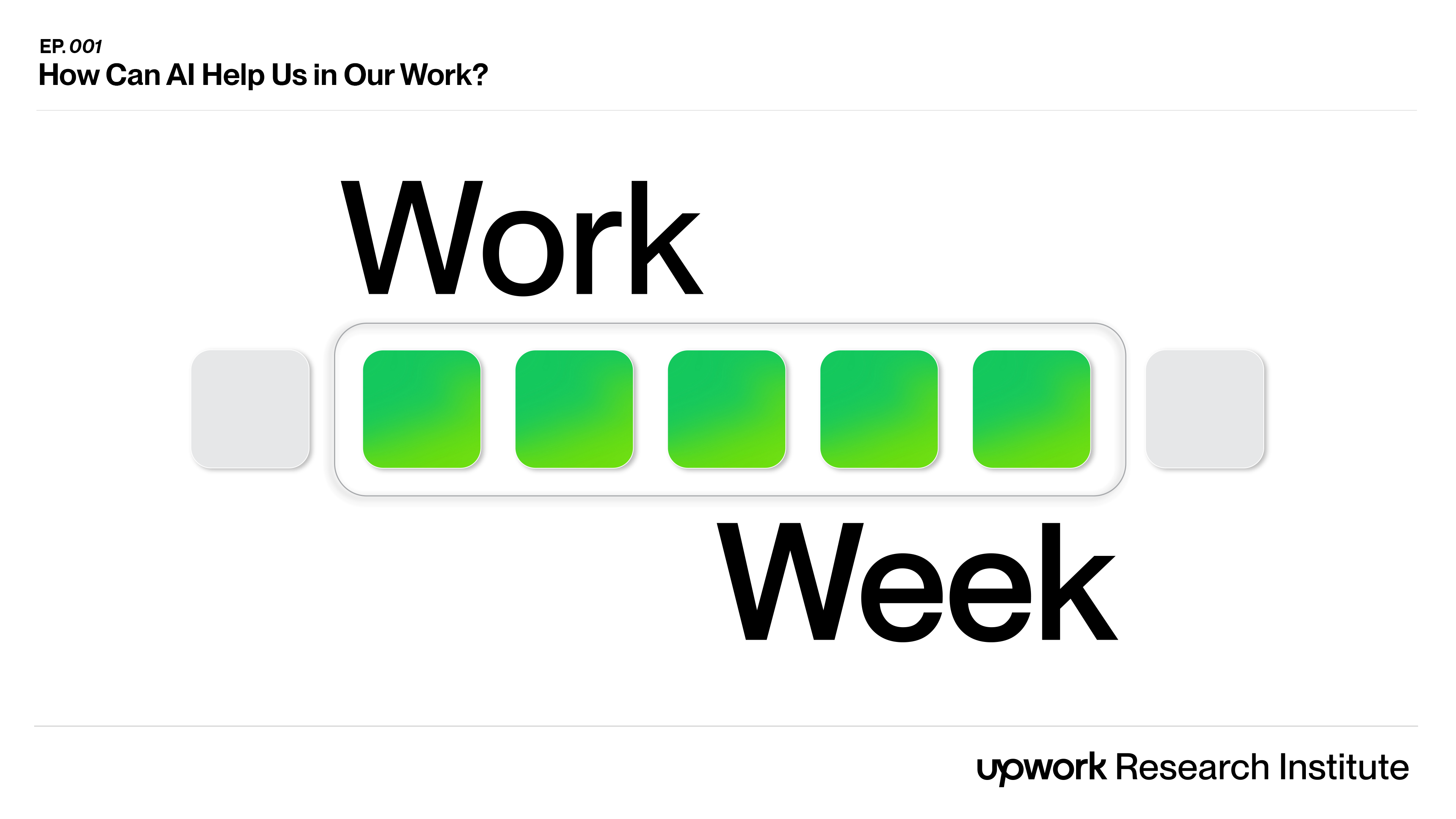
.jpg)